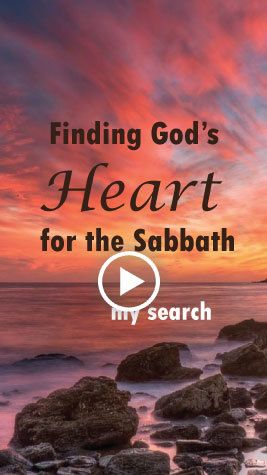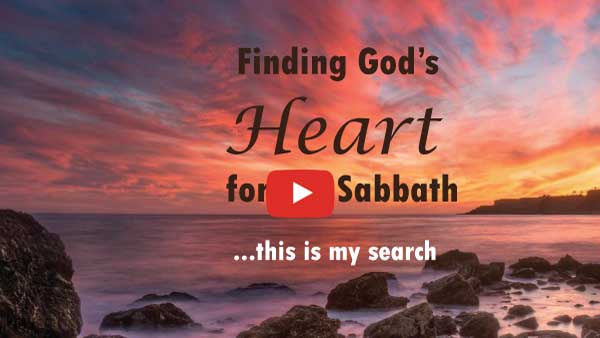Finding God’s Heart for the Shabbat
Introduction
In Genesis 1, we see the unfolding of creation, Each day is a wonderful new addition to the day before. And with each day, the level of complexity increases – from matter, to land and water, to plants, to animal, to man. We usually think that God stopped crating on the 6th day. But the 7th day was God’s greatest creation, On day 6, God made man; on the 7th day God made a way for man to walk with his creator. This day was the culmination of creation, the creation of man walking in fellowship with his God, This is far more than interacting with another human, It is another level of creation entirely, This was the sole purpose of all of creation, This was God’s heart. His greatest gift. This day was to be a delight, one of pure joy and enjoyment of all that God had made. But most of all it was God’s fullest expression of love to us, to give Himself. It was His wedding day with mankind.
Why does the Shabbat mean so much to Yahuah? Why does He ask us to set apart the Shabbat for Him, and not Sunday (the first day)? Consider the correlation between each day of creation and the history of the world. Each creation day corresponds to 1000 years of time and what happened in each of those thousand years:
Day 1 – Light and Dark created => Adam and Eve sinned
Day 2 – Waters separated between earth and heavens => Noah’s Flood
Day 3 – Dry ground appears => crossing of the Red Sea where dry ground appeared
Day 4 – Sun, moon and stars to separate light from darkness, and a signs to mark moed (Yahuah’s Feasts) => Yahushua came to earth as the light of the world and to whom the Feasts pointed and were/will be fulfilled in Him
Day 5 – fish and birds created => Holy Spirit came at Pentecost (bird) and disciples became ‘fishers’ of men
Day 6 – animal and man created => the Anit-Christ comes
Day 7 – day of rest => the Millennial Kingdom where Yahushua will reign for 1000 years
We see from the above, that the 7th Day was set apart and special from the beginning, and is directly prophetic of the time when Yahushua will reign on earth. It is impossible to celebrate this day on Sunday. That would not fit with Yahuah’s design from the beginning of the world. The Shabbat is what He is looking forward to. And each weekly Shabbat that we set apart for Him during our lifetime is a constant reminder to us, and the heavenly beings (and Satan too), that one day (soon) Yahushua will reign. The first day of the week is when sin entered the world. That is Satan’s day. But the 7th is Yahuah’s day.
Note: Since the video was made a number of years ago, I have come to understand the importance of the Names “Yahuah” and “Yahushua”. I find it so interesting and heart warming to hear how the Father reaches us each in different ways. For some, He taught about the Feasts first, and then the Shabbat, then the Name. The video uses the names as I understood them at the time that I learned about the Shabbat.
The above video is to inspire a love for what is dear to Yahuah’s heart.
However, many people want to debate whether the Shabbat is still for today,
so below are some answers to “debate” type questions.
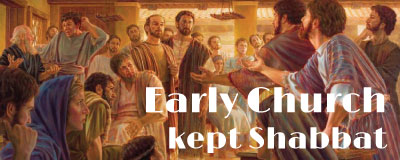
The first disciples were Hebrews. They kept the Shabbats. They would not abandon thousands of years’ heritage over night.
To discontinue the Shabbat would have been a HUGE change that would have required a lot of discussion and debate in the Bible, maybe even a whole book. There is no discussion of a change from Shabbat to Sunday in all of the New Testament, simply because it did not happen.
The Bereans (Acts 17:11) listened to Paul and then searched the scriptures (they only had the Old Testament) to make sure that what Paul taught was correct according to the Old Testament. So it is impossible that Paul was teaching anything that was different than the Old Testament. Paul did not teach a new doctrine. He taught the truth of the Old Testament. He taught what Yahushua taught. He never taught against the Word of the Father, Yahuah, the God of the Hebrews.
The faith of the disciples was solidly founded on the Old Testament, so Paul only needed to refute the man-made traditions that had been added by the religious leaders and the Pharisees. He WAS teaching against the Pharisees traditions.
A common argument is that the disciples did not keep the Shabbat but they met in the synagogues on the Shabbat only so they could preach to the people.
But Paul met on the Shabbat even when only preaching to the Gentiles.
Acts 13:42 And when the Jews were gone out of the synagogue, the Gentiles besought that these words might be preached to them the next sabbath. 44 And the next sabbath day came almost the whole city together to hear the word of God.
Why did the gentiles ask Paul to speak with them on the Shabbat? Why not ask for him to speak on Sunday since the gentiles were not Jewish??
This city wide meeting could not have happened in the synagogue. It was not big enough to hold all the people!!
When the gentiles asked to meet on the following Shabbat, it would have been the perfect time for Paul or the disciples to make clear that the day had been changed to Sunday. But the meeting for the gentiles happened on the Shabbat the following week.
The first believers, followers of Yahushua, were Jews – the disciples, the 3000, and most of the first converts.
There were no synagogues of the gentiles. The only worship centers for the gentiles were temples to the pagan gods and goddesses.
So the gentiles who became believers naturally went to the synagogues to learn about “the Way” and about Yahushua. After all, salvation is of the Jew. (John 4:22)
For more on the sect called “They Way” or the Natsarim, see YouTube video:
The Natsarim The Elect of the End Times
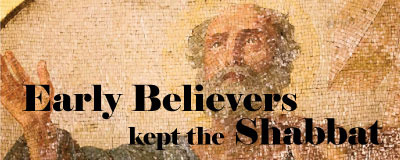
1. Where did Saul go looking for Christians to capture? He went to “every synagogue” (Acts 22:19; 26:11) because in those days the Christians still observed the Shabbat commandment, and he knew that he would find them in the synagogues on the days of the Shabbat. This is biblical proof that the New Testament church kept the Shabbat.
Acts 9:1-2 And Saul, yet breathing out threatenings and slaughter against the disciples of the Lord, went unto the high priest, 2 And desired of him letters to Damascus to the synagogues, that if he found any of this way, whether they were men or women, he might bring them bound unto Jerusalem.
Acts 22:19 [Paul] And I said, Lord, they know that I imprisoned and beat in every synagogue them that believed on thee:
Acts 5:42
And daily in the temple, and in every house, they ceased not to teach and preach Jesus Christ.
Acts 8:3
As for Saul, he made havoc of the church, entering into every house, and haling men and women committed them to prison.
2. “Thousands of Jews” believers, and also “all jealous of the law” (Acts 21:20), were in Jerusalem, where the twelve apostles stayed during the dispersion after Stephen’s persecution (Acts 8:1) . So these thousands of Jewish believers were under the teaching of the twelve apostles, so how could they be breaking the Shabbat commandment and being “jealous of the law” at the same time? Scripture says that after Pentecost, they “persevered in the doctrine of the apostles” (Acts 2:42), and this scripture (Acts 21:20) shows that the apostles not only kept the Shabbat commandment, but also taught others to keep it, just as Yahushua had told them (Matthew 5:19; 28:20). Nowhere in the New Testament after Yahushua’s death are there any Christians, Jews or Gentiles, persecuted for not keeping the day of the Shabbat. Thousands of Jewish believers were jealous of the law.
Acts 21:20 And when they heard it, they glorified the Lord, and said unto him, Thou seest, brother, how many thousands of Jews there are which believe; and they are all zealous of the law:
3. After the conversion of Paul on the road to Damascus.
It is obvious from this verse that Ananias kept the law.
Acts 22:12-14 And one Ananias, a devout man according to the law, having a good report of all the Jews which dwelt there, 13 Came unto me, and stood, and said unto me, Brother Saul, receive thy sight. And the same hour I looked up upon him. 14 And he said, The God of our fathers hath chosen thee, that thou shouldest know his will, and see that Just One, and shouldest hear the voice of his mouth.
4. James taught the Jewish Christians to obey the whole law
James 2:8 If ye fulfil the royal law according to the scripture, Thou shalt love thy neighbour as thyself, ye do well:
9 But if ye have respect to persons, ye commit sin, and are convinced of the law as transgressors.
10 For whosoever shall keep the whole law, and yet offend in one point, he is guilty of all.
11 For he that said, Do not commit adultery, said also, Do not kill. Now if thou commit no adultery, yet if thou kill, thou art become a transgressor of the law.
The law James was speaking of here was the ten commandments, the first four are based on the love of God, and the last six are based on love for our neighbor, “love your neighbor as yourself” (James 2:8)). This is confirmed by the discussion (James 2:11) of the Sixth Commandment, “You shall not kill” (Exodus 20:13; Deuteronomy 5:17), and the Seventh Commandment, “Thou shall not commit adultery” (Exodos 20:14; Deuteronomy 5:18). So when he talks about “the whole law” (James 2:10), is he ignoring the first four commandments? No, not when Yahushua said so clearly that loving God was the “first and greatest commandment” (Matthew 22:38). So, if offending at one point makes us all guilty (James 2:10), that is equal to those who break the Shabbat with murderers, adulterers, idolaters, etc. , isn’t it so? The Devil also knows that offending at one point makes us all guilty, and that’s why he works so hard to keep Christians from keeping the Day of Shabbat.
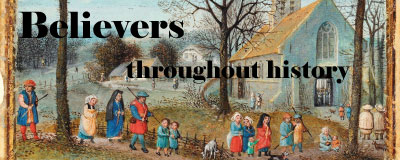
There is historical evidence that the Shabbat was kept by the gentiles all over the world for hundreds of years.
“History” that is written by the Catholic church does not contain this information because they wanted to eradicate all knowledge of the Shabbat so people would only follow the Sunday of the church.
See this website for over 150 documented examples of believers keeping the Shabbat all over the world.
https://www.considerthis.net/Files/Textfile/shabbathkeeping.htm
The reason why the “church” in the Roman empire changed to Sunday was to avoid persecution. In 70 A.D. the Jewish temple was destroyed by the Roman army and persecution for Judaism was growing fast. By as early as 90-100 AD some of the early Church fathers began moving away from anything that “appeared” Jewish to avoid persecution for apparent Judaism.
The earliest “Sabbath keeping” on Sunday was significantly ONLY in Rome and Alexandria where sun worship was prevalent. Other areas were still observing Saturday which also corroborates the part of pagan sun worship in changing the day. Nearly 300 years after the cross, SUN-day worship in Rome had really taken hold and so Christians now begun calling Sunday the Lord’s Day instead of Saturday.
As the Papal Church grew in power, it opposed Sabbath observance in favor of Sunday sacredness and outlawed resting on the Sabbath in the Council of Laodicea (A.D. 363-364).
Why would Sabbath resting need to be outlawed if everyone in Christianity had been keeping Sunday since the Apostles time?
The change of the Shabbat to Sunday was completed by the seventh century as the Popes persecuted all who resisted their innovations. Anyone found keeping the Seventh day Shabbat was persecuted and burnt at the stake.
Centuries later when the Protestant reformation began, the fourth Commandment had been almost murdered out of existence by the Roman Catholic Church, and so as all the new Protestant Churches began, they continued keeping Sunday in ignorance.
Many pages of early church history have been hidden or destroyed.
Here are a few quotes from (the website page is very long)
The Shabbath over the Centuries
Fourth Century
“The ancient Christians were very careful in the observance of Saturday, or the seventh day . . . It is plain that all the Oriental churches, and the greatest part of the world, observed the Shabbath as a festival…Athanasius likewise tells us that they held religious assembles on the Shabbath, not because they were infected with Judaism, but to worship Jesus, the Lord of the Shabbath, Epiphanius says the same.” “Antiquities of the Christian Church,” Vol.II Book XX, chap. 3, sec.1, 66. 1137,1138.
“In the last half of that century St. Ambrose of Milan stated officially that the Abyssinian bishop, Museus, had ‘traveled almost everywhere in the country of the Seres’ (China). For more than seventeen centuries the Abyssinian Church continued to sanctify Saturday as the holy day of the fourth commandment.” Ambrose, DeMoribus, Brachmanorium Opera Ominia, 1132, found in Migne, Patrologia Latima, Vol.17, pp.1131,1132.
Persia – CE 335-375 (40 Years Persecution under Shapur II)
The popular complaint against the Christians-“They despise our sungod, they have divine services on Saturday, they desecrate the sacred the earth by burying their dead in it.” Truth Triumphant,” p.170.
Fifth Century
“For although almost all churches throughout the world celebrated the sacred mysteries (the Lord’s Supper) on the Shabbath of every week, yet the Christians of Allexandria and at Rome, on account of some ancient tradition, refuse to do this.” The footnote which accompanies the foregoing quotation explains the use of the word “Shabbath.” It says: “That is, upon the Saturday. It should be observed, that Sunday is never called “the Shabbath’ by the ancient Fathers and historians.” Sacrates, “Ecclestical History,” Book 5, chap. 22, p. 289.
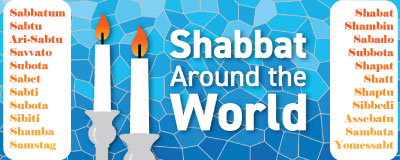
“Saturday” meaning “rest” is in languages all over the world. All languages originated at the Tower of Babel when God confused the languages. But God made sure that each language would continue to have the Shabbat ingrained in the language.
For charts with language list see:
The True Shabbath Found in the Languages of the World
Not even one language designates another day as the “day of rest.”
The Babylonian language, which was in use hundreds of years before the Hebrew race was founded, designated the seventh day of the week as “sa-ba-tu,” meaning rest day.
see also YouTube video starting at minute 4:40:
WHAT ARE SUNDAY LAWS and why is it a bad thing? Mark of the Beast warning.
Source for following:
The True Shabbath Found in the Languages of the World
Dr. William Meade Jones lived over a hundred and fifty years ago and was a well-known research expert in London England. He discovered in his studies that the seventh-day shabbath was the only weekly shabbath ever commanded by Yahuwah, the Father of our Savior Yahushua, in scripture.
Jones decided that since scripture clearly shows that the shabbath was first given to mankind at the end of the Creation Week (B’ereshiyth [Genesis] 2:1-3) then two important facts would have had to be known throughout the ancient world. First, a fixing of the seven-day weekly cycle on a world-wide basis, and second, an ancient world-wide knowledge of the seventh-day shabbath.
Jones was convinced of this for several reasons:
1. Adam and Noach were earnest worshipers of Yahuwah and were faithful shabbath keepers. (B’ereshiyth 6:9,7:5)
2. They would have taught their descendents about the shabbath and its sacredness.
3. The truth that mankind is to rest on the seventh day of each week requires a seven-day week, even though they may have later turned to idols and left the commandments of the True Eloah.
4. As the descendents of Adam and Noach spread out all over the world, they would have carried with them the seven-day week and the seventh day sacred shabbath given by Yahuwah to mankind.
Many of Adam’s and Noach’s descendents became scoffers. However, Jones reasoned, that they would still carry with them the twin truths of the Creation Week of B’ereshiyth 1 by their keeping of the seven-day weekly cycle and the seventh day shabbath by naming the seventh day of the week in their language as the day of shabbath rest.
William Mead Jones decided to research a majority of the languages of the world to see if his reasonings were true. The results of his research was as he suspected and is another powerful proof not only that the seventh day is the true shabbath of Yahuwah but also that the creation account in B’ereshiyth 1 and 2 is accurate and that Yahuwah is our Creator!
See the website for a large chart with the names of the days of the week in different cultures/languages.
The table .. includes some of the oldest languages known to man. One of these, the Babylonian language, was in use hundreds of years before Abraham. That language designated the seventh day of the week as “sa-ba-tu”, which means day of rest, indisputable proof that Yahweh’s holy shabbat as given in Scripture was not, and is not, exclusively Yahudiyth (Jewish).
Very few realize that the word “shabbat” and the concept of resting from work on the seventh day of the week is common to most of the ancient and modern languages of the world. This is evidence entirely independent of scripture and confirms the teaching that Yahweh’s seventh-day Shabbat predates the religion of Yisra’el. The concept of a sacred seventh-day rest was understood, accepted, and practiced by virtually every culture from Babel to modern times.
In studying the many languages of mankind you will find two important facts:
1. In the majority of the principal languages the last, or seventh, day of the week is designated as “shabbath.”
2. There is not even one language which designates another day as the “day of rest.”
From these facts we can conclude that not only those people who called the last day of the week “shabbat”, but all other peoples and races, insofar as they recognized any day of the week as “shabbat”, rested on the seventh day. . In fact, the great historian Socrates recorded that in his time the entire known world, with the exception of Rome and Alexandria, observed the seventh day of the week.
“The people of Constantinople, and of almost everywhere else, assemble on Saturday, as well as on the first day of the week, a custom never observed in Rome or Alexandria.” – Socrates, “Ecclesiastical History”, Book 7, Ch.19
Another interesting fact is that the words in the original languages used to designate the seventh day of the week as Shabbat have remained very similar, while the other words have changed so much over time that they are unintelligible to people of other languages. This is further proof that the shabbat and the words used to designate the seventh day of the week as the “shabbat day” originated at Creation in complete harmony with the scriptural record found in B’ereshiyth 2:1-3.

Some people claim that Saturday was “lost” or that the day was changed, so we can no longer know which day to keep. The Shabbat has not been “lost” through all the calendar “changes”. Time is Yahuah’s domain, not man’s. Even with man attempting so many changes to the way time is kept, Yahuah has kept what is most important to Him, because it is so important to Him.
The following is an excerpt from:
The Lost Shabbath?
If the Shabbat was forgotten from Creation to the Exodus, it was certainly known during the 40 years of Israel wandering in the wilderness when Yahuah gave them double manna on the 6th day, and none on the Shabbat, so they would rest on the 7th day.
If the Shabbat was forgotten from the Exodus to the time Yahushua walked the earth, we know that Yahushua definitely kept the correct day because in John 15:10 He said, “I have kept my Father’s commandments”.
But has the Shabbat been forgotten over the last 2000 years? Soon after the fall of Jerusalem in 70 AD, the diaspora took place, eventually scattering the Jews all over the world. They took the Scriptures and the knowledge of the Shabbat with them.
Today, we find them still keeping the original seventh day Shabbat , the same day they knew at the time of the diaspora, which was the same day Yahushua kept.
There is absolutely no disagreement or dispute amongst the Jewish communities – scattered as they still are – as to which day is the seventh day of the week. Every gathering in every country is in perfect agreement that the seventh day is the Shabbat, and that the scriptural seventh day starts at sundown on the secular weekday “Friday” and ends at sundown on the secular weekday “Saturday.”

Is the Shabbat the 3rd or the 4th Commandment?
The numbering of the commandments is not given in the Bible. The commandments are numbered differently depending on whether they appear in a Catholic, Protestant, or Hebrew Bible. Catholics consider the “Sabbath” commandment to be the 3rd commandment; whereas Hebrew, Protestants and others consider it to be the 4th commandment.

Each day starts with the evening, at sundown or twilight. (Some people believe that the day starts in the morning.)
Genesis 1:5 “and the evening and the morning were the first day.”
The “1st 24 hour period” started at evening, as did all the days.
Interesting that Creation also was in the Fall of the year (ie. the evening of the year). The first month of the year was our Sept/October. Later at the Exodus, Yahuah told Moses to change the first month of the year to the spring:
Exodus 12:2
This month shall be unto you the beginning of months: it shall be the first month of the year to you.
The 24 hour period is composed of two parts – “the night” and “the day”. The “day” part starts in the morning with the light.
John 11:9 Jesus answered, Are there not twelve hours in the day?
Leviticus 23:32 It shall be unto you a sabbath of rest, and ye shall afflict your souls: in the ninth day of the month at even, from even unto even, shall ye celebrate your sabbath.
Exodus 12:18 In the first month, on the fourteenth day of the month at even, ye shall eat unleavened bread, until the one and twentieth day of the month at even.
Nehemiah 13:19 And it came to pass, that when the gates of Jerusalem began to be dark before the sabbath, I commanded that the gates should be shut, and charged that they should not be opened till after the sabbath:
Mark 1:32 And at even, when the sun did set, they brought unto him all that were diseased, and them that were possessed with devils.
(People were brought to be healed as soon as the Sabbath day was over.)
“Even” is not the same as our understanding of “evening”. There are two evenings – one mid-afternoon and the other when the sun was going down. The “evening sacrifice” took place around 3 pm. That is when Yahushua died.
And before the sun set, He was placed in the tomb, because the High Sabbath (ie. the sunset) was approaching and He must be buried before then.

(source YouTube video:
Why Sabbath is not Shabbat
What is the difference between “Shabbat” and “Sabbath”? Unless we are keeping “Shabbat”, we could be keeping something that we call “Sabbath”, which is just religious.
The “h” is very significant because the “h” represents the Hebrew letter HEY. And in Hebrew, HEY means the “open window of revelation”. It means “to behold Him”. The SHIN, which has the HEY in it, is meant to be together. It is one letter. SHIN. Don’t break up the SHIN. Because if you break up the SHIN, you are breaking up what represents Yah, God. And you are taking this very thing that represents revelation, to behold Him, to understand Him, to know Him, and putting that at the end, when it should be at the beginning. The message is SHIN BEIT TAV, not SAMECH BEIT TAV. Some have taken hold of the Sabbath, but they are not taking hold of the Shabbat. The Shabbat is a gift to us. The Father only gives us things that we need for life. The Shabbat is not a burden to bare, but a gift to be enjoyed. The Shabbat is all about reconciliation. The Shabbat brings His people together in His presence.
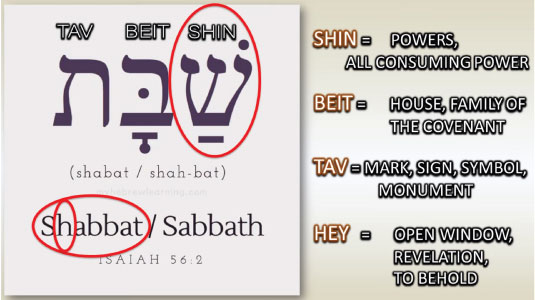
The SHIN means powers, the power of God. El Shaddai is God Almighty. He is the all powerful, almighty Elohim, all powerful God. So He’s the all consuming power as well. And it also looks like a flame. So it is an all consuming fire. And we know that our God, our Elohim, is an all consuming fire. The BEIT represents a “house” or the “family of the covenant” TAV, in ancient paleo Hebrew is the “cross” tilted to the side (more like an “X”). TAV represents mark, or sign, or symbol, or monument. So SHIN BEIT TAV means this is the “mark of the Shabbat” which means the “mark of the power of the house of the covenant” or this is the “mark of the house of the covenant that belongs to the powers”. Yahuah, who is Elohim God, He enters into the Shabbat. And His presence sanctifies it, sets it apart. The SHIN represents Yahuah, God, Elohim. He is in the Shabbat. This is the symbol that represents Him in this word Sha-bbat.
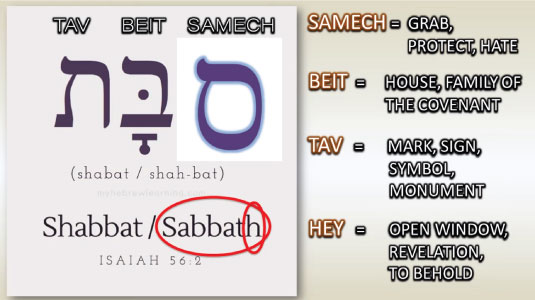
But if you look at the Sabbath, it is not SHIN BEIT TAV. It removes the SHIN and uses the letter SAMECH. Notice that the letter “h” has been taken out of the SHIN, the “Shabbat” and put at the end. I will explain the significance of that. We looked at the meaning of Shabbat, and it is a powerful word for rest. God, represented by the SHIN, is in it, as we read in Genesis. But in “Sabbath”, SAMECH is the letter in it. SAMECH means “grab, protect, hate”. That is a very different concept from SHIN. So this word, SAMECH, “to grab or protect” or even “to hate”. This changes the entire meaning of Shabbat. Now, instead of having a sign for the House of the Covenant that is representing the powers, or the powers that keep the House of the Covenant, we have this word meaning a mark for the House of the Covenant that people will grab at or try to protect, but would involve hate. I know it sounds confusing. But anything that doesn’t have Father’s Presence in it ends up being kept in a humanistic way. Man now is trying to do something, to keep a rest, to observe a mark or sign, but Father is not in it.
The ministry of reconciliation is about Yahuah restoring a people unto themselves as one family, to one house, one covenant, and under one Elohim bringing them back to Himself. Shabbat is a gift to all of humanity that you can enter into the House of the Covenant where He is already there waiting for you. Remember, the first Shabbat keeper is Yahuah Himself. He is in the house already sanctifying the house. But now the invitation is being given to all humanity to join Him in this House of the Covenant where the Powers are waiting for you. And there is power in the Shabbat because, as we will see, the Shabbat will be the distinguishing sign that separates the people of Yah from the world. This is very powerful for us to hear and understand. This is the Mark of Yahuah. And there is power in the Shabbat because, as we will see, the Shabbat will be the distinguishing sign that separates the people of Yah from the world.
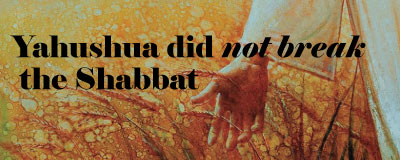
If Yahushua broke the Shabbat then He could not be the perfect Lamb that takes away the sins of the world. Either He did break the Shabbat and so He is not the Messiah; or we need to consider what He actually did.
The disciples were only gathering enough grain to eat, they were not harvesting the field. The Shabbat is not to be a burden. It is a joy, a reprieve from the work of harvesting the whole field!
The Pharisee didn’t know how to keep the Shabbat. They had rules that were much stricter than God’s rules. They interpreted “work” to include almost every physical activity. Even today, orthodox Jews consider turning on a light switch or pressing an elevator button to be “work”.
The Pharisees accused the Lord of the Shabbat of not keeping His own day!! But Yahushua knew how to keep the Shabbat according to the original intention of the Father when He gave the 10 Commandments. The Pharisees had added lots of extra rules that were not Yahuah’s.
Regarding John 5:18, too many people believe the Pharisees. The Pharisees said that Yahushua was breaking the Shabbat and the Pharisees said Yahushua was not God. If you believe Yahushua was God in the flesh, why believe the other half of the sentence that the Pharisees said?
The Pharisees didn’t like that Yahushua was not following their man-made traditions for keeping the Shabbat. He was following the heart of the Father. Yahuah sends rain and sunshine on any day, and answers prayer on any day. He “works” every day doing good, restoring health, giving hope.
When Yahushua was accused of working on the Shabbat, He was breaking the Pharisees rules. He was not breaking the Shabbat of the Father. HE said He was keeping His Father’s commandments (John 15:10) and the Pharisees were the ones keeping “traditions”. (see Matthew 15:1-3, Mark 7:8, Romans 10:1-3, Isaiah 29:13, Gal 1:14)
So how could He “work” as the “Father works” on the Shabbat and not be breaking the 4th Commandment? Yahushua only did the work of the Father. (John 4:34, 5:30, 6:38 – He came to only do the will of the Father) He did not come to exalt Himself. When Yahushua “worked” on the Shabbat it was to restore people to health in body and soul (to restore the person to the image of Yahuah without disease). So too, we should take one day, the Shabbat, to turn our attention to the “work” of the Kingdom… helping others, praising Yahuah, anything that builds others up and gives them hope, compassion, justice, teaching truth, praying for requests, searching for answers to give to people (in daily life or online), standing against evil and advancing Yahuah’s Kingdom. Yahuah knows we need to work to eat and survive, but He asked for one day to be set aside for Him. The Shabbat is a day to rest from our labors of trying to build our kingdom (working for money to buy food, clothing, housing) and to build God’s Kingdom (restoring hope, love, health..) It is a day when we trust Him to provide for our earthly needs, while we focus on Him and His Kingdom.
The priests in the temple “worked” on the Shabbat but they were serving Yahuah only. They were doing the work of Yahuah. In fact, the Levite priests did not have an inheritance like all the other tribes. Their inheritance was Yahuah! So they were always doing the work of Yahuah. Which is also what Yahushua was always doing while on earth. The issue is not work, but for whom it is being done. The “work” of the Shabbat is the furtherance of the Kingdom of God (not our own kingdom and working for money to support ourselves).
Yahushua clearly said that we are to help those who need our help on the Shabbat (Luke 13:14-16, Luke 14:4-5 for example).
The biblical Shabbat restrictions are more about work for economic or personal gain. Yahushua wasn’t ploughing a field to grow crops, or working to earn money, or painting his front door to improve the looks and value of his property. He was helping a fellow man in distress, with no monetary or personal gain.
The Shabbat was given to mankind as a gift, a day off our work to turn our attention to our bridegroom, to prepare for His coming Kingdom of him, to love Him and by extension help others in their walk toward the Kingdom.
Yahushua showed us the next level for the commandments (Matt 5:17-48) and this was also true for the Shabbat commandment.
The Shabbat is a picture of the Millennium when Yahushua will reign for 1000 years and we will rule and reign with Him. This will be the “Shabbat of time” and that time is yet to come. By keeping the Shabbat, we are stating our belief that Yahushua is the Messiah, the Lord of the Shabbat! This day must come at the end of time because the first 6 days are the time ruled by Satan.
By keeping this day special, it shows that we have a hope in the coming time when Yahushua will reign for 1000 years, the Millennial reign.
This is the Shabbat taken to the next level, like all the other commandments were in Matthew 5.
Yahuah told us to rest on the 7th day.
We are to rest from the work of providing for ourselves.
Yahuah does not need to work to provide for Himself. We do.
We are not God. We are to do what He asks us to do. He didn’t tell us to work all the time like He does; He told us to have a rest. Do we do what He asks us, or do we make up our own rules?
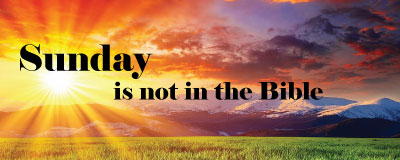
For every reference of ‘first day of the week’, the Greek actually says “first of the Shabbats (plural) or Shabbat (singular)”.
Sunday, the “first day of the week” is not found anywhere in the original Greek of the Bible. All of these verses say “the first of the Shabbats (σαββάτων, sabbatōn)” in the Greek.
Mat 28:1; Mar 16:2; Mar 16:9; Luke 24:1; John 20:1; John 20:19; Acts 20:7; 1Cor 16:2.
“Sabbaton” is plural, meaning Shabbats.
“Sabatou” is singular, meaning Shabbat.
The Greek word “sabbaton”, has been mistranslated as “first day of the week” and then people assume this to be Sunday. But the verses only mention “sabbaton”.
Another verse that many use as “proof” that the disciples met on Sunday is John 20:26 when Yahushua appeared the second time to the disciples. Some translations say He appeared “a week” later. However, the Greek is “eight days”. So this meeting was on a Monday, not a Sunday.
Most of the “First of the Shabbats”(plural) refers to the counting of 7 Shabbats up to the Feast of Pentecost. The early disciples were only interested in keeping the Shabbats (Feast Day Shabbats and 7th day Shabbat). They had no interest in the first day of the week.
A few verses are slightly different:
Mark 16:9 “first day of the Sabbatou (singlular)” is not consistent with any of the 4 gospels, including the earlier verse in Mark 16. The verses in Mark 16:9-20, are not included in all manuscripts, and this point about the Sabbatou is more evidence that the writer of Mark 16:9-20 was not the same author as the rest of the chapter, and was someone who did not understand the significance of the Feasts of the Lord.
1 Cor 16:2 “first of the Sabbatou (singlular)” may refer to the first Shabbat of the 7 Shabbat counts, so this would be the Feast of Firstfruits day, which happened after the end of Unleavened Bread.
Acts 20:7 “on the first of the sabbaton (Shabbats plural)”. This tells us the day they were meeting was the first day that they started counting toward the seven Shabbats. This is true because in Acts 20:16, Paul is determined to be in Jerusalem for the Feast of Pentecost. There were 3 feast that were to be celebrated in Jerusalem, Passover, Pentecost and Tabernacles. So it is clear here that Paul is still keeping the Feasts of the Lord (Lev 23).
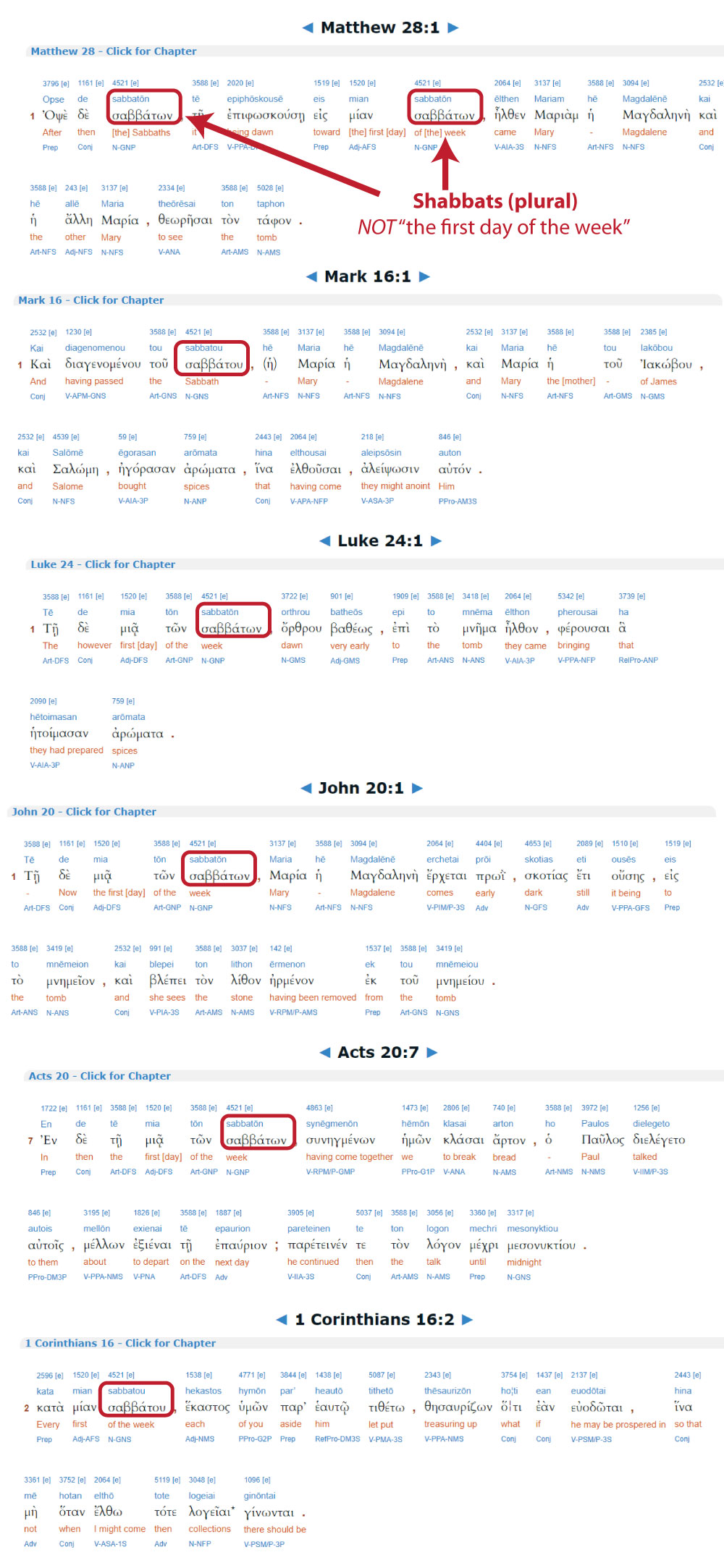
ALL the Bible verses say that the disciples met on the “Shabbat”.
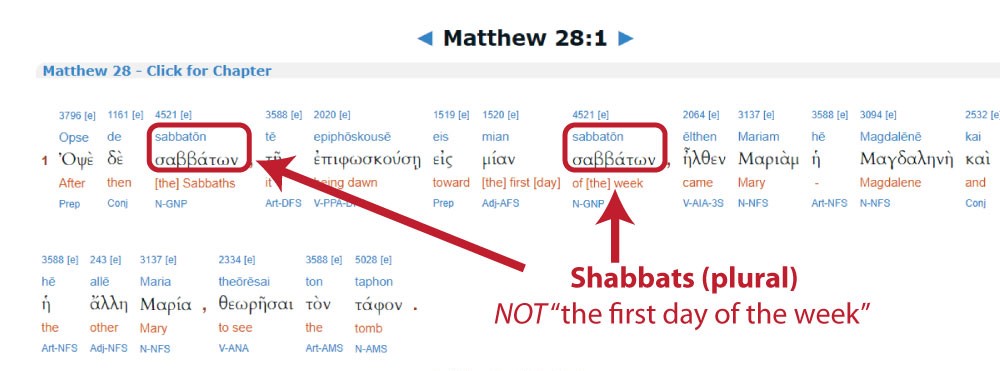
In Matt 28:1. The Greek word “sabaton (plural)” is written twice in this verse, only a few words apart, and yet it was translated “Sabbath” the first time, and “week” (“first day of the week”, aka Sunday) the second time. So was it “Shabbat” or Sunday? How can the same word be translated both Saturday and Sunday in the same verse?
Translators changed “the Shabbats” to “week” because they did not know about the Shabbat Feast Days of the Lord (Lev 23).
The Greek word for “week” is “εβδομάδα, evdomáda”.
It is not found anywhere in the NT.
The Greek word for “shabbat” is found as :
sabbasin – translated 13 times as “Shabbat”
sabbata – 1 time as “Shabbat”
sabbatō – 16 times as “Shabbat”
sabbatou – 14 times as “Shabbat”
sabbatōn – 5 times as “Shabbat”, 6 times as “week”
Why the difference in translation for only those 6 verses??
A week of time in Greek is “seven days” (Acts 21:27, 28:14) (see the Greek for this verse)
Notice in Matt 28:1 that both “Shabbats” are plural in the original Greek.
https://biblehub.com/interlinear/matthew/28.htm
So the verse actually is:
After the Sabbaths (plural), toward the first of the Sabbaths (plural)…
“After the Sabbaths” — two Shabbats had just passed, the 7th day Shabbat AND the Feast of Unleavened Bread Shabbat on Thursday.
“toward the first of the Sabbaths” — these Shabbats refer to the counting of the 7 Shabbats up to the Feast of Pentecost.
The writer of Matthew does not make any reference to Sunday or the “first day of the week”. That idea was inserted into the text by the translators who did not know or understand the Holy Days that were observed by the disciples

The day Yahuah chose to give the Holy Spirit, the birth of the Church at Pentecost, is the same day Yahuah chose to make a covenant with His People the Israelites at Mt Sinai. So the birth of the church was on a Shabbat Feast Day. And this had nothing to do with man’s choice, but only Yahuah’s doing. Just like the manna was given 6 days, but not on the Shabbat, to the Israelites in the wilderness. That could only have been done by Yahuah Himself. A constant reminder of the importance of the Shabbat.
The same here with the birth of the church. Only Yahuah could send the Holy Spirit and He chose to do it on a Holy Shabbat.
Obviously, there is neither Jew nor Greek with Yahuah, we are all one, those who are His People. (Gal 3:28) And He keeps His Feasts the same for the Old and the New Covenant!
The observance of the Feast of Weeks or Pentecost is recorded in the Old Testament in Exodus 34:22; Leviticus 23:15-22; Deuteronomy 16:9-10,16; 2 Chronicles 8:13.
Acts 2:1-2 when the day of Pentecost was fully come, they were all with one accord in one place.
2 And suddenly there came a sound from heaven as of a rushing mighty wind, and it filled all the house where they were sitting.
So the disciples were keeping the Shabbat in a “house”. They were not keeping Sunday or the “first day of the week.” And they were not in the Temple or synagogue “preaching to the Jews” while keeping this Shabbat.
And they couldn’t keep the Pentecost Shabbat without first keeping the 7 Shabbats leading up to it. Pentecost by definition is “keeping the count of seven Shabbats plus one day”.
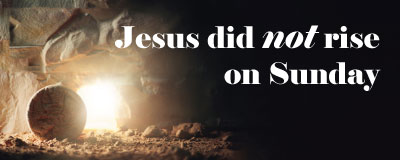
People assume the Bible says Yahushua rose on the “first day of the week”. But the Bible never says this!! It only tells when the women went to the tomb and found it empty. He had already risen, but when? By understanding the Feast of Passover, the High Holy day, which are Shabbats, and the 7th day Shabbat, you can search the scriptures and know the answer.
Even if there was a verse that told the day He rose, that would not mean that man can change Yahuah’s Commands!! Yahuah is the one who tells which is the day of rest, not us. And He never told us to change it.
There are two types of Shabbats – the 7th day Shabbat and the Feast Day Shabbats. Knowing this is very helpful when reading the Greek for Matthew 28:1 for example. It reads, “After the shabbats (plural. ie. the Shabbat of Passover and the 7th day Shabbat) toward the first of the Shabbats (plural. ie. the counting of the seven Shabbats up to the Feast of Pentecost), the women came to the tomb.”
Yahushua rose at the end of the Shabbat just before sunset. He was the firstfruits from the dead. (1 Corinthians 15:20)
The “firstfruits” refers to the barley wave sheaf that was cut at the very end of the Shabbat, and waved the next morning about the same time as the daily morning sacrifice, that is, about 9 am on Sunday. This is why, although Yahushua had risen (the end of the Shabbat), He could not be touched by Mary at the tomb, because He had not yet ascended to the Father (at the morning offering time.) She was at the tomb at dawn, several hours before the morning offering.
The reaping and waving of the sheaf symbolized Israel giving the first and best of the harvest to Yahuah and its subsequent acceptance by Him. It is exactly this symbolism that Yahushua fulfilled.
The sign of Jonah was “3 days and 3 nights in the heart of the earth”(ie. in the tomb, not “3 days and 3 nights from when he died”). The Scriptures do not say that Yahushua died on a Friday. The Scriptures say that He died on Passover, the day before the High Shabbat of the Feast of Unleavened Bread. He died on the Day of Preparation, the day when the people “prepared” for the feast of Unleavened Bread by removing all the leaven from their homes.
Yahushua died in the “middle of the week”
Daniel 9:27 And he shall confirm the covenant with many for one week: and in the midst of the week he shall cause the sacrifice and the oblation to cease…
The Messiah caused the sacrifices to cease by the New Covenant in His blood, and became for the HOLY Father an abomination by taking the sins of the whole world upon Himself, “For he hath made him to be sin for us, who knew no sin; that we might be made the righteousness of God in him” 2 Cor 5:21.
Yahushua died about 3pm on Wednesday at the time of the evening sacrifice. Joseph of Arimathea hurried to put His body in the grave BEFORE the start of the High Shabbat (John 19:31 – Feast day of Unleavened Bread which started at sundown of the day of Passover; not the 7th day Shabbat). So this means that Yahushua was placed in the “heart of the earth” BEFORE sundown Wednesday. (It took a few hours to request His body, take it down and place it in the tomb.) He rose 3 days and 3 nights later which would be BEFORE sundown of the 7th day Shabbat. He did not rise “at the beginning of the first day” but rather “at the end of the 7th day”.
All other suggested days (Thursday or Friday crucifixion) do not fulfill the ONE sign that Yahushua said would be true, the sign of Jonah. (Matthew 12:39-40)
For more details and information, please see:
‘After Three Days’

The traditional “Palm Sunday” is when Yahushua entered Jerusalem riding on a donkey. This doesn’t make sense for a Friday crucifixion.
On the 10th day of Nissan the Passover Lamb is chosen (Ex 12:3). This was the day Yahushua entered Jerusalem riding on a donkey. The same day the High Priest went to the fields around Bethlehem (where Yahushua, the Lamb of God, was born) to select the Passover Lamb. As the priest brought the lamb to Jerusalem, there were crowds waiting to sing “Hosanna: Blessed is he who comes in the name of the LORD.” That’s why there were already so many people along this stretch of road, throwing palm branches and clothes.
When Yahushua came, they thought He was the High Priest (He was! ) who brought the lamb (He was! ) That year Yahushua was the High Priest, the Lamb, the Prophet and the King!!
Now if Yahushua rode on the 10th day, and the Passover Lamb was sacrificed on the 14th day (Leviticus 23:5).. IF the 10th was the traditional Palm Sunday, that would mean He was crucified on Thursday, not Friday. The days have to line up with Passover, that is what Yahushua was fulfilling!!
So Palm Sunday and Good Friday simply cannot be right.
Actually, Yahushua rode into Jerusalem on Saturday, He was crucified on Wednesday morning, He died at 3:00pm Passover and rose late Saturday.
Sequence of days as laid out for Passover Week in Leveticus 23:5-11
5 In the fourteenth day of the first month at even is the Lord’s passover.
6 And on the fifteenth day of the same month is the feast of unleavened bread unto the Lord: seven days ye must eat unleavened bread.
7 In the first day ye shall have an holy convocation [a Shabbat, no work]: ye shall do no servile work therein.
… [wave offering on the day after the 7th day Shabbat]
11 And he shall wave the sheaf before the Lord, to be accepted for you: on the morrow after the sabbath the priest shall wave it.
If the crucifixion was on Friday, there was NO TIME for women to prepare spices.
The women didn’t have time to buy and prepare the spices AFTER the body of Yahushua was brought down from the cross and BEFORE Saturday started.
The day after the crucifixion was a Feast Day Shabbat (Feast of Unleavened Bread) Exodus 23:15, Lev 23:6-8, Deut 16:3-4,8
John 19:31
The Jews therefore, because it was the preparation, that the bodies should not remain upon the cross on the sabbath day, (for that sabbath day was an high day,) besought Pilate that their legs might be broken, and that they might be taken away.
Mark 15:47-16:1 And Mary Magdalene and Mary the mother of Joses beheld where he was laid. And when the sabbath was past [the Shabbat High Day John 19:31], Mary Magdalene, and Mary the mother of James, and Salome, had bought sweet spices, that they might come and anoint him.
The women waited until the High Shabbat was passed, then they bought and prepared the spices on the Friday, which was not a Shabbat day, and then they rested on the 7th day Shabbat before going to the tomb early the first day of the week.
Luke 23:55-24:1 And the women who had come with him from Galilee, followed behind, and saw the tomb, and how his body was laid. And they returned, and prepared spices and ointments [This could not have been done AFTER the body of Yahushua was lowered from the cross AND BEFORE Shabbat, as making spices first required they buy them and then do the intensive process of work and time to prepare them. So there is TIME between these two verses.]; and rested the sabbath day according to the commandment. [7th day Shabbat]
They bought and prepared the spices on Friday, but they did not have time to go to the tomb to embalm the body on Friday before the Shabbat began Friday evening.
They arrived early, on Sunday morning at dawn, to the grave, so they certainly did not buy or prepare the spices that day.
Luke 24:1 Now upon the first day of the week, very early in the morning, they came unto the sepulchre, bringing the spices which they had prepared, and certain others with them.
John 20:1 The first day of the week cometh Mary Magdalene early, when it was yet dark, unto the sepulchre, and seeth the stone taken away from the sepulchre.
Yahushua was crucified on Wednesday. The next day, Thursday, was a High Shabbat Rest day for the start of the Feast of Unleavened Bread; then on Friday the women bought the spice and prepared them; then they rested for the Shabbat, and early Sunday morning at dawn, they came to the tomb.
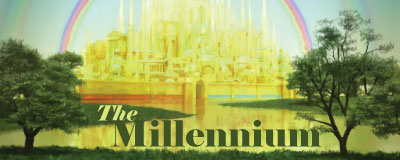
During the last 1000 years of time, will be the Millennium, the time of rest for the earth. Satan will be bound and thrown into the bottomless pit (not the earth) for 1000 years (Rev 20:2-3.) The world will be ruled by Yahushua during this time. The earth will not be completely destroyed by the end of the tribulation and God’s wrath: Isaiah 24:6; Revelation 5:10; Zechariah 14:16-18
There will be people living on the earth during the Millennium who survived the tribulation, but Satan will have no influence. People will still have to choose, but they will be living under the perfect reign of Yahushua. They will not be able to blame Satan. This will show that even under a perfect King, people still can choose wrong.
Satan will be loosed at the end of the 1000 years for one final test of people. The people who lived during the 1000 years, and were clearly taught the Ways of Yahuah will be tested, and this will prove that still, even under the best of circumstances, people still choose evil, and most will still choose to side with Satan (Rev 20:8). This is a sobering thought. We cannot say “The devil made me do it.” We must take full responsibility for our own decisions.
And so both the time when Satan is ruler, and when Yahushua is ruler, people have a choice and they are responsible.
The Millennium is the Kingdom of which Yahushua spoke so much (over 100 verses or passages). It is the Shabbat of time. He is Lord of the Shabbat!
During the Millennium, the Feast of Tabernacles (a Shabbat) will be kept.
Zechariah 14:16-18
16 And it shall come to pass, that every one that is left of all the nations which came against Jerusalem shall even go up from year to year to worship the King, the Lord of hosts, and to keep the feast of tabernacles.
17 And it shall be, that whoso will not come up of all the families of the earth unto Jerusalem to worship the King, the Lord of hosts, even upon them shall be no rain.
18 And if the family of Egypt go not up, and come not, that have no rain; there shall be the plague, wherewith the Lord will smite the heathen that come not up to keep the feast of tabernacles.
The Millennium is not heaven. It is not the New Heaven and the New Earth.
AFTER the Millennium, then the New Heaven and the New Earth will happen. That will be the 8th day. Time will end and there will be a New Heaven and a New Earth with only the righteous living. (see section: “The 8th Day”)
The Shabbat will be kept in the New Heaven and the New Earth.
“And it shall come to pass that from one new moon to another and from one Shabbat to another, shall all flesh (everyone) come to worship before Me saith the Lord. For as the New Heavens and New Earth, which I will make, shall remain before Me saith the Lord, so shall your seed and your name remain” (Isa.66:22-23).
In the city in the New Heaven and the New Earth there will be no sun (Rev 21:23; 22:5) to mark days and years, but there will still be the Shabbat.
Will there still be days and night outside of the city, and those outside of the city in the Kingdom of Heaven will still have night and day, and keep the Shabbat? but those in the city, in the very presence of Yahuah and Yahushua will not experience night because they are continually in the presence of Yahushua, Lord of the Shabbat? I don’t know.
The Kingdom of God and the Kingdom of Heaven are not the same. The Kingdom of God is the city within the Kingdom of Heaven. Saved people will live in the Kingdom of Heaven, but only the overcomers will enter the City.
Since the Bible clearly teaches that the Shabbat will be honored throughout eternity, does it not seem true that the Shabbat, in some form, all the way back into eternity past has been part of Yahuah’s plan? As long as Yahuah has existed, which is forever in the past, and as long as He will exist, which is forever in the future, the Shabbat has existed and will exist. Thus the Shabbat and Yahuah have always been, and will always exist together.

The first day of Yahushua’s resurrected life was actually the 8th day, not the first day of the week. It was a new beginning. He rose at the very end of the Shabat, just before sunset, as the next day was beginning.
After the 6000 years comes the Millennium, the Shabbat Age because that is when Yahuah’s peace covers the earth. That should be the end.
However, it is not.
The 8th day is the day that breaks the cycle of the 7 day week, it transcends it. It is not supposed to be there, but it is. So it is a mystery. Eight is the number that goes beyond the number system in the Bible.
Revelation has lots about the number 7; seven trumpets, angels, vials, etc. Then that should be the end. But right at the end of the Bible, the last 2 chapters, is the mystery of the 8th day. The 8th day starts the mystery age.
Rev 20:11 … the heavens and earth fled away. In Genesis, Yahuah created them; Now in Rev 20:11 it is all gone, it has fled away. It is the end.
Rev 21:1 Now let’s look at the 8th day…. Then I saw a NEW Heaven and a NEW earth…
This is the 8th day. In Hebrew seven is “sha-vah” which means ‘complete’
In Hebrew, eight is “shem-o-neh” which means ‘beyond completeness’.
Seven days to cleanse, to consecrate, to prepare.
Seven days to End evil in the universe.
In Genesis, seven is basically the END.
Eight is the day that follows “the end”.
There are a number of “Eighth Day” examples in the Bible, each referring to something new. One of those being the day at the end of the Feast of Tabernacles. This 8th day looks forward to the time when we leave our earthly dwelling (tabernacle) to go to our permanent, new, heavenly home.
The plan of Yahuah does not focus ultimately on the return of Yahushua (Jesus Christ).
That is incredibly important, but God the Father putting His throne on this earth on the Eighth Day is what everything ultimately moves toward.
A time will come when “time” ends. Then will start the 8th day, the New Heaven and the New Earth. If we are caught in a cycle of 7 repeating days, then to go to the 8th day, is to break free. So the day after the 7th day becomes the 8th day.
Counterfeit Veneration of Eight
Gnosticism honored the number eight. One of the first false epistles, called the Epistle of Barnabas (between 70 – 130 AD), argued on behalf of the eighth day and its importance. The first and primary argument for the change from Shabbat to Sunday was the number eight. Secondarily was the argument that Christ rose on Sunday (which is modernly held to as the reason for the change).
Later, Jerome argued that the number seven represented Judaism and the law, and the eighth day represented the gospel, so therefore, he argued, Christians must do away with the law. Note, this was man’s reasoning, not Yahuah’s!!
Epistle of Barnabas 15:8-9 I will make a beginning of the eighth day, that is, a beginning of another world. For that reason, also, we keep the eighth day with joyfulness, the day on which Jesus rose again from the dead.
Shabbat means rest. Rest can only come after evil is defeated.
Satan brought evil into the world at the beginning, on the “first day”, the first 1000 years.
The Shabbat is the 7th, last day. The first day was when evil entered the world. The last day, is when Yahushua will reign, and Satan will be bound for 1000 years.
A time will come when “time” ends. Then will start the 8th day, the New Heaven and the New Earth. That time has not come yet. To confuse Sunday with the 8th day is to misunderstand Yahuah’s order of time.
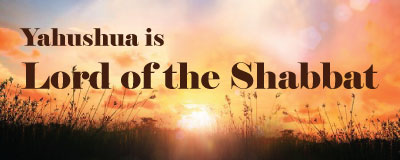
Yaushua is Lord of the Shabbat. He is not Lord of Sunday. He was the Creator in Genesis and He created the Shabbat. He also was present on Mt Sinai and gave the 10 Commandments. Definitely the Shabbat is HIS and belongs to Him. It was before sin entered the world!
Yahushua is “Lord of the Shabbat” because that is when He will reign over the earth, the Millennium. That is when Satan will be bound for 1000 years.
The Shabbat is not for salvation, it is for those who are ALREADY saved.
He who keeps the Shabbat is walking with the Lord of the Shabbat.
Yahushua IS the Shabbat. So if you reject the Shabbat, are you rejecting Him?
One word in the Hebrew is never translated into any language. It is the “aleph-tav”, “the Word”, the first and last letters of the Hebrew alphabet (found over 9000 times in the Old Testament). In the New Testament, it is “Alpha and Omega” which we know to be Yahushua.
“I AM” = Everything
“Aleph-Tav” = Everything
The Aleph-Tav encompass the entire written Word.
On the road to Emmaus, “beginning at Moses and all the prophets, [Yahushua] expounded unto them in all the scriptures [OT] the things concerning himself” (Luke 24:27, 32, 45)
It is first found in the Interlinear Bible, Genesis 1:1 “In the beginning God אֵ֥ת created the heavens and the earth” אֵ֥ת is Aleph-Tav
John 1:1 “In the beginning was the Word, and the Word was with God, and the Word was God.” John clearly refers to this!
When “God” creates or speaks, the “Aleph-Tav” is in the text. When the Shabbat was created, the “Aleph-Tav” was there.
Genesis 2:3 And God blessed the אֵ֥ת seventh day and sanctified it.
Yahushua said to keep His commandments. Yahushua and the Father are One. Both, the Father and Yahushua gave the 10 Commandments from the top of Mt Sinai.
When Yahuah spoke the 10 Commandments from the top of the mountain in fire and lightening, the verse has “Aleph-Tav” 4 times! (Exodus 20:18 (3 of these “Aleph-Tav” are translated as “and” in English, וְאֶת )
Ex 20:18 And all the people saw the אֶת thunderings, and the אֶת lightnings, and the אֶת noise of the trumpet, and the אֶת mountain smoking: and when the people saw it, they removed, and stood afar off.
The only commandments which contain the “Aleph-Tav” are the commandment about the Name (Ex 20:7 where אֶת is three times), the Shabbat (Ex 20:8-11 where אֶת is six times), and honoring parents (Ex 20:12 where אֶת is twice).
The Shabbat and the Name are the two commandments not usually kept by Christians.
See this webpage and search for אֶת
Interlinear Bible Genesis 20
For more on the “Aleph-Tav” see this YouTube video and channel:
Introduction to the VAV-Aleph-Tav in the Scriptures by Bill Sanford

Not everything changed when Yahushua came!
What 𝙙𝙞𝙙 change?
Following points are taken from:
What changed because Jesus died?
What word fills this blank?
This is the only thing I want to find out from you: did you receive ____ by the works of the Law, or by hearing with faith? (Galatians 3:2)
Possible answers: salvation, grace, mercy, eternal life…
When Yahushua was about to ascend back to heaven, what did He command His disciples to wait for?
The presence of the Holy Spirit in the believer is what changed because Yahushua died.
But I tell you the truth, it is to your advantage that I go away; for if I do not go away, the Helper will not come to you; but if I go, I will send Him to you. (John 16:7)
Paul asked the Galatians, “did you receive the Spirit by works of the law, or by hearing with faith?” The giving of the Holy Spirit is the key distinctive of Christianity and the fundamental change that occurred because Yahushua died.
What changed when Yahushua died and rose again?
1. By the Holy Spirit, we are a new creation
2. By the Holy Spirit, we have intimate access to the Father
3. By the Holy Spirit, we have unity, power and gifts to do Yahushua’s work on earth.
No saint in the Old Testament had this. None! The Holy Spirit came on individuals like Samson and David, but He did not indwell and His presence was often temporary. And so when we read about the activity of the Holy Spirit in the New Testament we are reading about what changed when Jesus died.
Just before His arrest and execution, Jesus told His disciples why it was good that He was going to die: (see also John 14:16-17, 26; 15:26; 16:13-15)
But I tell you the truth, it is to your advantage that I go away; for if I do not go away, the Helper will not come to you; but if I go, I will send Him to you. (John 16:7)
John the Baptist connected Jesus’ coming with the baptism of the Holy Spirit. Jesus now connects His death with the coming of the Holy Spirit. It will not be in the Old Testament sense: “abides with you.” It will be in a new sense: “will be in you.”
In the first Pentecost a single fire descended on Mt. Sinai and the people backed off and remained at a distance. In the second Pentecost, the fire came and split up, rested on, and then filled each believer in the room. In the first Pentecost, God spoke from the mount. In the second Pentecost, God spoke through the believers by the Holy Spirit. Because Yahushua died, the holy, distant, and fearful God now lives in men and women of faith. This is a monumental change brought about by Yahushua’s death. To meditate on the two events is to see the magnitude of the change. The distant terrifying God is now near and intimate.
Now, by the Holy Spirit, we are empowered to do what God required.
“But this is the covenant which I will make with the house of Israel after those days,” declares the Lord, “I will put My law within them and on their heart I will write it; and I will be their God, and they shall be My people. (Jeremiah 31:31-34; and quoted in Hebrews 8:8-12)
“Moreover, I will give you a new heart and put a new spirit within you; and I will remove the heart of stone from your flesh and give you a heart of flesh. I will put My Spirit within you and cause you to walk in My statues, and you will be careful to observe My ordinances.” (Ezekiel 36:26-27)

Do you ever wonder how there can be 2.3 billion Christians in the world when Yahushua said “Narrow is the Way, and few there be that find it?” Matthew 7:14
After 300 AD, the “Christian” church observed Sunday, but they were not the true followers of Yahushua. The true followers were called “Natsarim” or “The Way”. Paul was from this sect:
Acts 24:5 For we [Tertullus, speaking for the High Priest] have found this man [Paul] a pestilent fellow, and a mover of sedition among all the Jews throughout the world, and a ringleader of the sect of the Nazarenes:
Acts 28:22 But we desire to hear of thee what thou thinkest: for as concerning this sect, we know that every where it is spoken against.
In the synagogues Paul preached “the Way” which was a sect (Acts 24:5, 28:22). He taught the people to reject the teaching of the man-made traditions of the Pharisees and return to the Word of Yahuah. He taught the resurrection and welcomed gentiles as fellow believers.
During one of his defense speeches, Paul said:
Acts 24:14 But this I confess unto thee, that after the Way which they call heresy, so worship I the God of my fathers, believing all things which are written in the law and in the prophets:
Acts 9:2
And desired of him letters to Damascus to the synagogues, that if he found any of this Way, whether they were men or women, he might bring them bound unto Jerusalem.
Acts 19:9
But some of them became obstinate; they refused to believe and publicly maligned the Way. So Paul left them. He took the disciples with him and had discussions daily in the lecture hall of Tyrannus.
Acts 19:23 The Riot in Ephesus
About that time there arose a great disturbance about the Way.
Acts 22:4
I persecuted the followers of this Way to their death, arresting both men and women and throwing them into prison,
Acts 24:14
But this I confess unto thee, that after the Way which they call heresy, so worship I the God of my fathers, believing all things which are written in the law and in the prophets:
Acts 24:22
Then Felix, who was well acquainted with the Way, adjourned the proceedings. “When Lysias the commander comes,” he said, “I will decide your case.”
All verses with “the Way” in the New Testament
Matt 22:16, Mark 12:14, Luke 1:79, 20:21, Acts 9:2,18:25,26, 19:9,23, 22:4, 24:14,22, 2 Peter 2:2
Verses with “the Way” in the Old Testament
Genesis 3:24, 18:19, Exodus 18:20, 23:20, Deuteronomy 1:33, 4:7, 8:2, 9:16,11:28, 13:5, 31:29, Judges 2:22, 1 Samuel 12:23, 1 Chronicles 23:31, Nehemiah 9:12,19, Psalm 32:8, 85:13,119:27,30,33, 139:24, 143:8, Proverbs 2:8, 4:11, 6:23, 8:20, 9:6, 10:17,29, 12:28, 22:6, Isaiah 26:7-8, 30:21, 35:8, 40:3, 48:17, 59:8, 62:10, Jeremiah 2:17, 5:4,5, 21:8, 50:5, Ezekiel 18:25,29, 33:17,20, Micah 2:13, Malachi 2:8, 3:1
Excellent video on “the Way”:
https://www.youtube.com/watch?v=jFj2hvYHlu8&t=70s
“The Natsarim The Elect of the End Times”
The early disciples were not “Greek” or “Roman”. Thy were Hebrew and were severely persecuted by the Romans right up to Constantine. Why would the true followers suddenly leave their Hebrew roots and become “Roman” and form a “Roman Catholic church” around 300 AD?
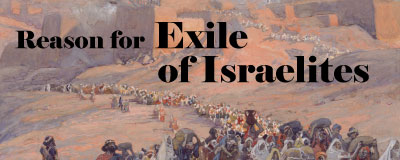
Not keeping the Shabbat was “a major reason” for the Israelites going into captivity.
The length of their captivity was to be 70 years, one year for each Sabbatical year that they did not keep. So their exile was closely tied to Shabbat breaking.
Nehemiah also clearly states this:
Nehemiah 13:15, 17-18
15 In those days saw I in Judah some treading wine presses on the sabbath, and bringing in sheaves, and lading asses; as also wine, grapes, and figs, and all manner of burdens, which they brought into Jerusalem on the sabbath day: and I testified against them in the day wherein they sold victuals.
17 Then I contended with the nobles of Judah, and said unto them, What evil thing is this that ye do, and profane the sabbath day?
18 Did not your fathers thus, and did not our God bring all this evil upon us, and upon this city? yet ye bring more wrath upon Israel by profaning the sabbath.
In the book of Jeremiah, Yahuah told the people that he would exile them from the land for 70 years, because this was the amount of time that the Shabbat rest had been disobeyed (490 years total).
Jer. 25:11-12; 29:10-14
Lev. 25:2-4; 26:33-35
2 Chron. 36:21
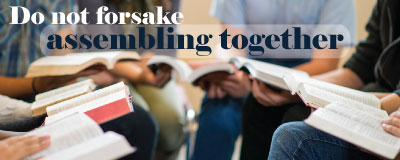
Hebrews 10:25 Not forsaking the assembling of ourselves together, as the manner of some is; but exhorting one another: and so much the more, as ye see the day approaching.
This verse is not talking about weekly meetings as we know them. We are not being commanded to go to church each week!
“to assemble” refers to meeting for the Feasts of the Lord. This was the reason the people of Israel “assembled” in Jerusalem.
The disciples were “assembled” in the upper room for the Feast of FirstFruits. John 20:19
They were “assembled” for the Feast of Weeks (aka Pentecost) when the Holy Spirit came. Acts 4:31
Following from source:
https://promisesandsecrets.com/church/Hebchurch.html
The early Church had no concept of “regularly scheduled church services” until after Constantine.
The use of the Greek word “episunagoge” in Hebrews 10:25 is unusual and profound! Normally, the author would have used the word “sunagoge” or regularly scheduled worship services, as in James 2:2 where “sunagoge” is translated “assembly”. But the Hebrew Christians are urged to “EPIsunagoge”. The “EPI” in front of “sunagoge” adds the meaning “super” or “over and above”. So, God’s Word here is not telling the Hebrew Christians to go to regularly scheduled church meetings.
“Episunagoge” is only used twice in the New Testament, in Hebrews 10:25 and in 2 Thessalonians 2:1. In 2 Thessalonians 2:1, it speaks of our “gathering together” in the air to meet Yahushua at the Rapture of the Church.
So the meaning in Hebrews could also refer to being gathered together to meet Yahushua.
Another interpretation for “Episunagoge”
would be reference to the Feasts of the Lord, which were “called out assemblies” for all the people held 3 times a year. The writer of Hebrews may be exhorting the believers to not forsake the assemblies of the Lord, the Feasts of the Lord.
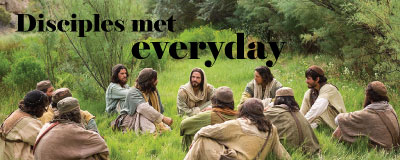
The disciples met everyday in the Temple, not just the Shabbat. (Acts 2:46, 5:42, 17:11, 17,19:9)
This is exactly what Yahushua did:
Matthew 26:55 Every day I sat in the temple courts teaching, and you did not arrest me.
Also Mark 14:49, Luke 19:47, 21:37, 22:53
The Shabbat is for rest, not a command to worship.
So if the church is following the example of Yahushua and the apostles, why don’t they meet every day? If the day does not matter, why do all Christian churches meet on Sunday?
Why choose any day as special if Christ is your rest everyday??
Acts 2:46 𝗘𝘃𝗲𝗿𝘆 𝗱𝗮𝘆 𝘁𝗵𝗲𝘆 𝗰𝗼𝗻𝘁𝗶𝗻𝘂𝗲𝗱 𝘁𝗼 𝗺𝗲𝗲𝘁 together in the temple courts. They broke bread in their homes and ate together with glad and sincere hearts,
Acts 5:42 D𝗮𝘆 𝗮𝗳𝘁𝗲𝗿 𝗱𝗮𝘆, in the temple courts and from house to house, they never stopped teaching and proclaiming the good news that Jesus is the Messiah.
Acts 17:11 Now the Berean Jews were of more noble character than those in Thessalonica, for they received the message with great eagerness and examined the Scriptures 𝗲𝘃𝗲𝗿𝘆 𝗱𝗮𝘆 to see if what Paul said was true.
Acts 17:17 So he reasoned in the synagogue with both Jews and God-fearing Greeks, as well as in the marketplace 𝗱𝗮𝘆 𝗯𝘆 𝗱𝗮𝘆 with those who happened to be there.
Acts 19:9 …So Paul left them. He took the disciples with him and had discussions 𝗱𝗮𝗶𝗹𝘆 in the lecture hall of Tyrannus.
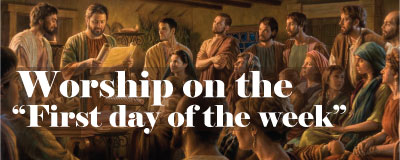
Matthew 28:1, Mark 16:2, Mark 16:9, Luke 24:1, John 20:1 – All these verses record that the women came to the tomb to embalm Yahushua, thinking He was dead, not to worship Him.
John 20:19 – disciples gathered for fear (not for worship)!
1 Corinthians 16:2 – day to set aside money (no mention of church gathering on this day) The Jews have nothing to do with money on the Shabbat. So this verse proves that they had not chosen Sunday as a day of worship.
In fact, this was the the “Day of First Fruits”, the day to “set aside” something to give. A very important concept in the Old Testament.
Acts 20:7 – disciples came together to break bread and Paul preached before departing (breaking bread was done at the start of each meal, usually by the head person of the house.)
And this specific occasion was the Day of Firstfruits (see Acts 20:6 — Paul mentions the “days of unleavened bread”. This refers to the Feast of Unleavened Bread which lasted 7 days and was one of the Shabbat Feasts of the Lord. Firstfruits comes after the Days of Unleavened Bread.)
Breaking bread is not always the Lord’s Supper. The phrase sometimes describes the Lord’s Supper and sometimes a meal, but never both at the same time.
Acts 27:33-38 the shipwreck sailors were not having communion with Paul. Also this “breaking of bread” occurred after the “fast”(Acts 27:9) which refers to the fast of the Day of Atonement, so it could not have been communion.
“Breaking bread” is only communion when “the cup” is also mentioned (I Cor 10; 1 Cor 11). “The cup” is a direct reference to “the cups” of wine that were part of the Passover meal.
Acts 20:6,7,11 This occurred AFTER the Feast of Unleavened Bread (Acts 20:6) and on the Day of Firstfruits (Acts 20:7 “first of the Shabbats”). The people came together to have a meal and hear Paul preach. They started with a meal “breaking bread”(Acts 20:7) and the meeting went so long, that they had another meal after midnight (Acts 20:11).
In Acts 2:46 we read that the disciples continued “daily with one accord in the temple, and breaking bread from house to house, did eat their meat with gladness and singleness of heart.”
The disciples were not having “communion” every single day! This verse clearly states that they were sharing meals (breaking bread) every day.
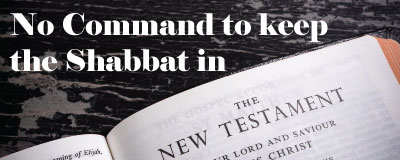
To “follow” is to do as Yahushua did. He kept the Shabbats according to His Father’s Commands and Covenants. If His disciples were “following Him”, they would keep the Shabbats when He kept them.
Matthew 10:38 And whoever does not take his cross and follow me is not worthy of me.
(other verses where Yahushua says to “follow Him” Matt 4:19, 8:22, 9:9, 16:24, 19:21, 19:28; Mark 1:17, 2:14, 8:34, 10:21; Luke 5:27, 9:23, 9:59, 18:22; John 1:43, 8:12, 10:27, 12:26, 21:19, 21:22)
1 Cor 11:1 [Paul said] Follow my example, as I follow the example of Christ.
Matt 23:1-3 Then Jesus said to the crowds and to his disciples: 2 “The teachers of the law and the Pharisees sit in Moses’ seat. 3 So you must be careful to do everything they tell you. But do not do what they do, for they do not practice what they preach.
John 14:15 “If you love me, keep my commands. 21 Whoever has my commands and keeps them is the one who loves me. The one who loves me will be loved by my Father, and I too will love them and show myself to them.” 23 Jesus replied, “Anyone who loves me will obey my teaching. My Father will love them, and we will come to them and make our home with them. 24 Anyone who does not love me will not obey my teaching. These words you hear are not my own; they belong to the Father who sent me. 31 but he [Holy Spirit] comes so that the world may learn that I love the Father and do exactly what my Father has commanded me.
John 15:10 If you keep my commands, you will remain in my love, just as I have kept my Father’s commands and remain in his love.
What is “love” according to the Bible? It is to do the commands of the Father!
Mark 12:30 Love the Lord your God with all your heart and with all your soul and with all your mind and with all your strength.’ 31 The second is this: ‘Love your neighbor as yourself.’ There is no commandment greater than these.”
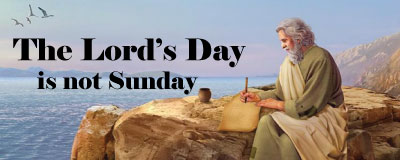
The “day of the Lord” — ”The Lord’s day” refers to a day of JUDGMENT or the day when Yahushua (Jesus) returns, not a day of gathering for worship.
Acts 2:20 – The sun shall be turned into darkness, and the moon into blood…
1 Corinthians 5:5 – Judgment day is the day of the Lord
2 Corinthians 1:14 – we are your rejoicing, even as ye also are ours in the day of the Lord Jesus (when Yahushua returns)
1 Thessalonians 5:2, 2 Peter 3:10 – Day of the Lord comes as a thief in the night.
A word search for “day of the Lord” in the Bible shows it occurs 29 times, and each time it refers to a terrible day of calamity and Yahuah’s judgement.
In the 404 verses in Revelation, there are 605 references or quotes from the Old Testament.
Revelation draws from the Old Testament more than any other New Testament book. John was not referring to the “Christian Sunday” when he wrote “the Lord’s day”.
Revelation 1:10 “The Lord’s Day”
Circular logic = Sunday is the Lord’s Day, therefore John is speaking about Sunday.
John in the Spirit (no reference to the 1st day of the week). To John, the phrase “the Lord’s day”, referred to the Old Testament passages of the coming destruction that climaxes in the return of Christ (Isaiah 13:6, 9; Joel 1:15; 2:1, 11, 31; Amos 5:18)
Revelation is about destruction which is exactly what the “Day of the Lord” is.
.
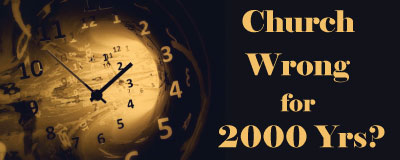
Would not the Holy Spirit tell us?
The Holy Spirit will let us know,
but the Holy Spirit will not stop us from sinning!
The Holy Spirit will guide us into all truth.
But the Holy Spirit will not force us into all truth.
We must choose to listen and accept the truth.
If we choose not to listen, the Holy Spirit will be quenched.
Just because something has been taught for thousands of years, does not make it true.
Search for the truth!
As well, the Holy Spirit will not say one thing one time, and a different, opposing thing, another time!
If that appears to be happening, then it is not the Holy Spirit speaking.
The truth of the Holy Spirit will never contradict the Father’s Word.
The 4th Commandment is the only commandment that the “Christian Church” blatantly violates.
“The Holy Spirit descends upon those whose hearts are right – it is not a divine sign that their doctrine is right! Believers generally become Bible scholars after their conversion, not before. Far too many get stuck on the first step, if so then the Spirit comes and the Spirit goes, leaving them with lives that are little changed.”
(Messianic Church Arising – Sons of Zion vs Sons of Greece. Vol Two by Dr. Miles R. Jones, page 282)
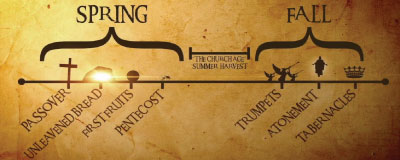
Yahuah gave the Feasts as a picture of His plan of salvation. To observe Communion (Passover) more than once a year, is to change the “picture” that He clearly gave us. The Last Supper was the Passover Meal, which only happens once a year. Since Yahushua would become the Passover Lamb the next day, thus fulfilling this Feast, He instituted a remembrance of this Feast by telling the disciples that as often as they kept the Passover they were now to break the bread and drink the wine in remembrance of Him, instead of sacrificing the Passover Lamb. He was not instituting a weekly communion!
When the nation of Israel split into Northern and Southern Kingdoms in 1 Kings 12, Jeroboam changed the place, time, and method of worship. He chose a Holy day different than what Yahuah had given to Israel. So he chose his own day. When the Bible talks about future kings and how bad they were, it often mentions the “sins of Jeroboam”. It is worth considering what sins he did that were so bad.
When Yahuah gave the Feast days, it was His plan of salvation. Anyone who changes the Holy days to their own day of choice has changed Yahuah’s plan.
Passover (not a Shabbat) – sacrifice of the Lamb who takes away the sin of the world (John 1:29)
Feast of Unleavened Bread (first and last day are Shabbats) – burial, removal of sin from our lives (1 Corinthians 5:7-8)
Firstfruits offering (not a Shabbat) – Yahushua rises from the grave with a glorified body (1 Cor 15:20-23, 42-44; Phil 3:21)
Feast of Pentecost – the Holy Spirit comes to indwell the believers (Acts 2:4)
Feast of Trumpets – the rapture at the last trumpet (1 Corinthians 15:51-52, Matthew 24:31, 1 Thessalonians 4:16)
Day of Atonement – judgement of believers for our works (1 Corinthians 3:11-13)
Feast of Tabernacles – Our new home in the mansions prepared for us (John 14:2)
The Last Great Day – the New Heavens and the New Earth forever (Rev 21:1)
Feast of Trumpets, Day of Atonement, Feast of Tabernacles and The Last Great Day have not yet been fulfilled.
The Shabbat – the Millennium, 1000 years of rest with Yahushua reigning (This has not yet happened. It is not yet fulfilled.)
Firstfruits is not a High Shabbat, so the women could come to the tomb that day intending to “work” by embalming the body of Yahushua. (Sometimes it is referred to as the Feast of FirstFruits, but it is not actually one of the Feasts.)
We also know that the day of Firstfruits is not a Shabbat because the disciples collected money on that day. (1 Corinthians 16:2)
Here is a short video explaining how the Feasts of the Lord are fulfilled in Yahushua (Jesus).
https://www.youtube.com/watch?v=DdPsmTQu1WQ
Some people say, “I offer the Lord the day of MY rest”.
Yahuah does not want “your” day of rest. HE is the one who chose the day BECAUSE it is part of HIS plan of salvation. All the Shabbat Feast days lay out His plan of Salvation. We must not replace His plan with our own plan.
The 7th day is a picture of the Millennium when Yahushua will reign for 1000 years. That day does not, and cannot, happen on the “Monday” or “Tuesday” of the week. It can, and must, only happen on the Shabbat of time, the 7th day, the last day of the week, the day AFTER Satan’s rule ends.
The God of the Universe has made an appointment with you. He told us the day. It is not for us to choose any day we find convenient.
We are not saved by keeping the Shabbat.
But the Feast days, including the Shabbat, are a PICTURE of the plan of salvation. That is the difference. The “plan of salvation” is much more than simply being saved from our sins.
The day of Firstfruits, after the 7th day Shabbat, was not a “Shabbat”. It was the first day that they started looking forward to the counting of the 7 Shabbats leading up to Pentecost.
The Christian holidays are not from God but are man-made traditions.
YouTube video:
Truth Or Tradition | Passion For Truth Ministries | Is Christmas Pagan?

Paul kept the Feasts of the Lord which were Shabbats (Acts 18:21, 20:6,16, 27:9, 1 Cor 16:8) and encouraged the Gentile Christians to do the same. The Feasts of the Lord are found in Exodus 23 and Leviticus 23.
Feast of Unleavened Bread
Paul wrote to the Corinthians about A.D. 55:
1 Cor 5:7 So let us celebrate the feast, not with old yeast, nor with the yeast of malice and wickedness, but with unleavened bread, with sincerity and truth.
Clearly, Paul is encouraging the predominantly gentile church in Corinth to celebrate the Feast of Unleavened Bread.
The Corinthian church was made up primarily of Gentiles who, prior to their introduction to the Messiah, would have had little familiarity with the festivals in the Jewish liturgical calendar, However, Paul’s reference to the Feast of Unleavened Bread in his letter demonstrates that it had taken on relevance for the Gentile believers at Corinth.
Feast of Firstfruits
Yahushua is the FirstFruits of the dead.
1 Corinthians 15:20 But now is Christ risen from the dead, and become the firstfruits of them that slept.
If Paul had not taught the gentile Christians at Corinth about the Feast of Firstfruits, this passage would have no meaning to them.
Feast of Pentecost
Paul was definitely keeping the Feast of Pentecost. He was not going to Jerusalem to preach to the Jews!
Acts 18:21 But bade them farewell, saying, I must by all means keep this feast that cometh in Jerusalem: but I will return again unto you, if God will. And he sailed from Ephesus.
Acts 20:16 For Paul had intended to pass over to Ephesus, not to stop in Asia, for he hastened to be at Jerusalem on the day of Pentecost.
The “we” referenced in this verse includes Paul, Luke, and at least six other Gentile believers.
(see verses 4-5).
1 Corinthians 16:8 But I will tarry at Ephesus until Pentecost.
Feast of Passover (this is actually the first Feast of the year, right before Feast of Unleavened Bread)
At the Last Supper, Yahushua ate the Passover with His disciples and commanded them to keep the Passover in remembrance of Him.
When He died on the cross, the yearly sacrificial lamb would no longer be required but the disciples were still to keep the Passover, now with the bread and the wine, in remembrance of His broken body and shed blood shed.
Yahushua kept the Passover Matt 26:18, Mark 14:12-16, Luke 22:8,15
Paul kept the Passover 1 Cor 11:23-29, Acts 20:6
Feast of Atonement is mentioned in Acts
Acts 27:9 Now when much time was spent, and when sailing was now dangerous, because the fast [Day of Atonement was The Fast day, in the fall] was now already past, Paul admonished them
If Paul kept these Shabbats, he was certainly also keeping the 7th day Shabbat.
The Gentile church would not keep the Shabbat Feast of the Lord and ignore the Seventh Day Shabbat
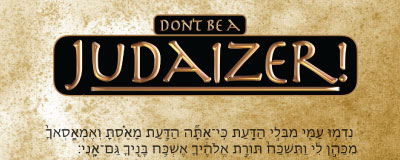
Many man-made rules were “added” by the Pharisees (Matt 15:1-3, Mark 7:8, Romans 10:1-3, Col 2:23, Isaiah 29:13, Gal 1:14). Yahushua and Paul both taught against these Jewish customs.
They did not teach against Yahuah’s Laws and Holy Word.
Judiazer = one compels others to follows Jewish customs and Jewish laws
Paul only rejected the traditions of men which included requiring people to be circumcised to be saved (Gal 2). This was a requirement of the Judiazers, but is not found in the Old Testament.
The faith of the disciples was solidly founded on the Old Testament, so Paul only needed to refute the man-made traditions that had been added by the religious leaders and the Pharisees. Not eating with gentiles, and requiring circumcision for salvation, were two of those hotly debated topics. Neither of those were laws given by Yahuah in the Old Testament, but had been added by the religious leaders.
The Judaists wanted to impose THEIR laws on the people.
The Pharisees/Jews/religious leaders/hypocrites added many laws/rules to the simple Word of Yahuah.
For example, they added:
– exactly how to wash ones’ hands
– how far to walk on a Shabbat
– when to fast
– not to pick any grain on the Shabbat
– circumcision to become a “true Israelite”
– not eating a meal with gentiles
– leave your ox in the ditch if it falls in on the Shabbat
These were NOT in the Old Testament Torah.
These were NOT Yahuah’s laws.
The Pharisees were the ones who misunderstood the Old Testament, and they were the ones to say “it was needful to circumcise and to keep the law of Moses.” (Acts 15:5)
According to the Pharisees’ man-made rules, “Peter lived as a gentile and not as a Jew” by simply eating a meal with the gentiles.
“Those of the circumcision” refers to the people who believed that circumcision was required for “salvation”. That was an error of the Pharisees, and was never in the Law of Yahuah.
“To compel the Gentiles to Judaism” means to require the Gentiles to follow the man-made rules of the Pharisees who required circumcision and not eating with gentiles.
Judaism = Pharisees man-made rules
Judaism does NOT mean the Word of Yahuah, the Torah, the Old Testament.
The Bereans (Acts 17:11) listened to Paul and then searched the scriptures daily (they only had the Old Testament) to make sure that what Paul taught was correct according to the Old Testament. So it is impossible that Paul was teaching anything that was different than the pure scripture found in the Old Testament. No where in the Old Testament does it say to not keep the Commandments or to ignore Yahuah’s Laws.
Paul only rejected the traditions that were NOT found in the Word of Yahuah. Before Paul became a follower of Yahushua, he was following the Talmud and traditions of the elders, NOT the Old Testament of Yahuah.
Galatians 1:14 And profited in the Jews’ religion above many my equals in mine own nation, being more exceedingly zealous of the traditions of my fathers.
Yahushua broke the Pharisee’s law; He did not break His Father’s Law. Yahushua came to set us free from man-made laws so we could follow Yahuah with all our heart.
Yahushua did not condemn the Pharisees for keeping the Torah, but they had neglected the heart matters.
Matthew 23:23 Woe unto you, scribes and Pharisees, hypocrites! for ye pay tithe of mint and anise and cummin, and have omitted the weightier matters of the law, judgment, mercy, and faith: these ought ye to have done, and not to leave the other undone.
Yahushua says that “Justice, mercy, and faith” are part of the law!! Yahushua told the Pharisees that they should do both, paying the tithe and the weightier matters of the law.
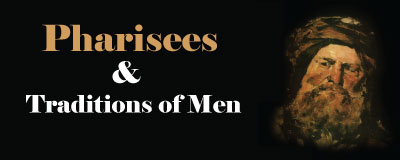
The Pharisees were NOT following the Old Testament, they were following their customs and traditions. They had ADDED to the Word of Yahuah, something Yahuah explicitly told the Israeites not to do (Deut 4:2, 12:32, Proverbs 30:6, Rev 22:18).
The Commandments and Shabbats were never referred to as traditions.
Traditions were only what man makes. Yahuah does not give us traditions.
Be careful when reading the Bible and note when it says “the Pharisees said…” For example, “the Pharisees said the disciples were not keeping the Shabbat.” Yahushua warned us to beware of the leaven (doctrine) of the Pharisees (Matt 16:6). The Pharisees were basing their sayings on their own traditions, not the Word of Yahuah.
Matthew 9:34, 12:2, 24; Mark 2:16, 24 and lots more
The Pharisees SAID they were following Moses, but Yahushua said they were not. Whom do you believe?
The Pharisees said Yahushua wasn’t keeping the Shabbat (John 9:16), HE said He was keeping His Father’s commandments (John 15:10). Who do you believe??!
The Jews added so many rules and traditions to the Word. This is what Yahushua opposed and for this He was killed. The Pharisees said He wasn’t keeping the law, by that they meant He wasn’t keeping their version of the law.
Christians view the Old Testament through the lens of the Jews, and thus think that what the Jews taught is actually what the Old Testament Scriptures teach. For this reason, the Christians reject the Old Testament. Actually, what they are rejecting is the Jews’ interpretation of the Old Testament. Unfortunately, the Christians reject what Yahuah actually gave as well, because they do not understand the difference between the Pharisaical teachings and the Word of the Father.
The religious system in place during the time of Yahushua and Paul was not according to the design that Yahuah had given the Israelites. A lot of man-made traditions had been added.
Around 200 BC, the Pharisees and Sadducees took over the Temple. They were not from the priestly Levitical line. So the people in authority in the Temple during Yahushua’s time were not following the Father’s Ways. THIS is the reason that they so opposed Yahushua. He was teaching the true heart of the Father, not all the man-made traditions. King David did follow the Father’s laws. Did David ever say the laws were a burden? No! In the Psalms so often he said he delighted in the law of the Lord. Worth thinking about.
Here are a number of verses that show why the religious leaders hated Yahushua so much.
Matthew 15:1-3 Then came to Jesus scribes and Pharisees, which were of Jerusalem, saying,
2 [Pharisees speaking] Why do thy disciples transgress the tradition of the elders? for they wash not their hands when they eat bread.
3 [Yahushua speaking] But he answered and said unto them, Why do ye also transgress the commandment of God by your tradition?
Matthew 22:29
But Jesus answered and said to them, “You are mistaken, not understanding the Scriptures nor the power of God.
Mark 7:5, 8
5 [Pharisees speaking] Then the Pharisees and scribes asked him, Why walk not thy disciples according to the tradition of the elders, but eat bread with unwashen hands?
8 [Yahushua speaking] For laying aside the commandment of God, ye hold the tradition of men, …
Romans 10:1-3 Brethren, my heart’s desire and prayer to God for Israel is, that they might be saved. 2 For I bear them record that they have a zeal of God, but not according to knowledge.
3 For they being ignorant of God’s righteousness, and going about to establish their own righteousness, have not submitted themselves unto the righteousness of God.
Isaiah 29:13 Wherefore the Lord said, Forasmuch as this people draw near me with their mouth, and with their lips do honour me, but have removed their heart far from me, and their fear toward me is taught by the precept of men:
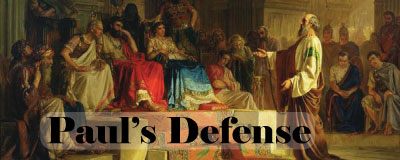
In Paul’s defense speeches, he never once mentioned the Shabbat. His speeches were interrupted when he mentioned things that the Pharisees opposed. Each time, the people listened until he mentioned the “resurrection of the dead”, or “taking the message to the gentiles”. He never mentioned the Shabbat or changing it to another day.
The Jews opposed Paul because he preached Yahushua risen from the dead.
Acts 17:32 And when they heard of the resurrection of the dead, some mocked: and others said, We will hear thee again of this matter.
Acts 13 Paul was preaching the resurrection. There is no mention of the law or changing the Shabbat to Sunday. If Paul had mentioned these points, it would have been recorded for certain!!
The Jews opposed even associating with gentiles
Acts 21:37-22:29
21 [Paul said Yahushua sent him to the Gentiles.]: for I will send thee far hence unto the Gentiles.
22 And they gave him audience unto this word, and then lifted up their voices, and said, Away with such a fellow from the earth: for it is not fit that he should live.
The Pharisees did not believe Yahushua was the risen Messiah
Acts 26:1-32
23 That Christ should suffer, and that he should be the first that should rise from the dead, and should shew light unto the people, and to the Gentiles.
24 And as he thus spake for himself, Festus said with a loud voice, Paul, thou art beside thyself; much learning doth make thee mad.
Again the issue of the resurrection.
Acts 24:1-27
21 …Touching the resurrection of the dead I am called in question by you this day.
These are Paul’s own words in his own defense:
Acts 24:14
14 But this I confess unto thee, that after the way which they call heresy, so worship I the God of my fathers, believing all things which are written in the law and in the prophets:
Silence is the biggest PROOF that the Shabbat was still observed by the early church.
IF it was deleted or changed, there would have been HUGE discussions in the New Testament about the change. There was the discussion about circumcision but NO discussion about the Shabbat… that is because it was so integrated into their way of life, it never changed.
Paul never mentioned a change from Shabbat to the “First day of the week” because he never taught it.
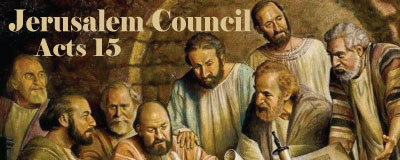
The meeting in Jerusalem in Acts 15 was conducted in accordance with the Old Testament and the law. Acts 15:19 starts with “therefore”. So it is based on the previous verses Acts 15:15-19, which contains a prophecy quote from Amos 9:11 to restore the tabernacle of David: which is all about the reunification of Ephraim and Judah. The four necessary things given to the non-Jews to observe come from the Holiness laws in Leviticus 17-20. Furthermore, observance of these four things reverses the sins of Ephraim spoken of in the book of Hosea. The reason why the dispute was settled in Jerusalem is because this is what the Torah requires (Deut. 17:8-10).
So Acts 15:20 is not a new set of rules made up by the apostles for the gentiles.
https://hebroots.org/paul-and-torah/acts-15/
Acts 15:5, 10
5 Then some of the believers who belonged to the party of the Pharisees stood up and said, “The Gentiles must be circumcised and required to keep the law of Moses.” 6 The apostles and elders met to consider this question. … 10 Now then, why do you try to test God by putting on the necks of Gentiles a yoke that neither we nor our ancestors have been able to bear? 11 No! We believe it is through the grace of our Lord Jesus that we are saved, just as they are.”
19 “It is my judgment, therefore, that we should not make it difficult for the Gentiles who are turning to God. 20 Instead we should write to them, telling them to abstain from food polluted by idols, from sexual immorality, from the meat of strangled animals and from blood. 21 For the law of Moses has been preached in every city from the earliest times and is read in the synagogues on every Sabbath.”
This agrees with Galatians 2.
Gal 2:14 How is it, then, that you force Gentiles to follow Jewish customs?
The “yoke” was the Jewish customs, not the Word of Yahuah.
The whole discussion in Galatians 2 is about circumcision (flesh) and whether it is required of the gentiles. THIS is what Galatians 3 concludes is not required. This is the law being spoken about.
Galatians 3:3
3 Are ye so foolish? having begun in the Spirit, are ye now made perfect by the flesh?
Circumcision was only required for Old Testament people when they were partaking of the Passover Meal. Since Yahushua is our Passover, this Passover meal has been fulfilled and is replaced by remembering Him with the Bread and Wine. THIS is why it was so important to not require circumcision for the new believers. They MUST recognize that the Passover was fulfilled in order to believe in the Messiah for salvation.

The Shabbat neither saves nor condemns. It is a gift, just like the other Shabbats (7th year land rest, Jubilee, Feast Days), that are given with a promise of health (Ex 15:26).
If we accept a gift, we enjoy it and benefit by it. If we do not accept a gift, we are not punished, but we miss out on many blessings.
Keeping the Commandments never saved anyone, not in the Old Testament or New Testament. Did “honor your parents”, or “not murder” ever save anyone? Certainly not!
None of the commandments will save us. Does that mean we do not keep them? Do we only keep commandments if they save us?
Keeping commandments is out of love, not to get saved!
The Commandments are not for forgiveness of sin.
There are two parts to a believer’s life:
1. getting saved by faith alone
2. living a Spirit filled life
The Shabbat is not for #1, it is for #2.
Keeping the Shabbat does not make one a child of Yahuah. Just as keeping the laws of a country does not make one a citizen of that country.
But once one is a child of Yahuah, then they follow the Father and keep the laws of His Kingdom. Just as a person is required to keep the laws of the country in which they are a citizen.
We do not depend on the law to save us. That would be like depending on the law to save us from a speeding ticket. The law only shows us our errors. Salvation has always been by faith, in the Old Testament and the New Testament. Once saved, by the power of the Holy Spirit, and by listening to the Holy Spirit, we are empowered to keep the law of our Heavenly Father.
The law is powerful to condemn, but it is not powerful to save.
The Law is righteous, holy and good (Rom 7:12), but it cannot make us righteous, holy and good. It can only condemn us when we break it.
The law still stands. If there was no law, then there would be no need for a Savior! (Rom 8:3-4)
The purpose of the law was never to save us. It was to show us we need a savior. If the law was deleted when the savior came, then we would no longer need a savior, since there would be no law to condemn us anymore!!
Only the requirement for sacrifices and the temple, which were all pointing to Yahushua, are no longer required because He has come. His death proves that the law is unchangeable and could not be abolished.
If there is no law, then there is no need for grace. Because the law could not simply be done away with, Yahushua had to die, which was the ultimate price to pay because He loved us so much.
No indeed, both the law and the Savior are essential. How can sin be defined if there is no standard by which to expose the sin??
At the final Judgement all people will be judged. If the law is done away with, on what basis will they be judged?
Only the blood of Yahushua can save us. He does not save us from the law; He saves us from the punishment that justly results when we break the law.
All people in the Old Testament looked forward, in faith, to the coming Messiah Yahushua; all people in the New Testament look back, in faith, to the Messiah. Salvation is in no other Name! Only the blood of Yahushua can save us.
The idea that works of the law are required for salvation comes from the Pharisees in the New Testament. The Pharisees teachings are actually man-made traditions. They ‘added’ rules in addition to what was written in the Old Testament. (Something Yahuah told us not to do – Deuteronomy 4:2, Proverbs 30:6, Rev 22:18-19)
Unfortunately, most Christians cannot distinguish between the written Word of the Old Testament and what the Pharisees taught. When reading the New Testament, look for times when the Pharisees are speaking vs when Yahushua is speaking. Note the difference.

Those who are saved will be judged by their works and will receive crowns for the things they have done. That is why living a holy, righteous life is important.
The grace of our Lord does not nullify that He will also be our judge. We will all be judged at the Bema seat (2 Corinthians 5:10).
This judgement will not determine our salvation but will determine our position in the Kingdom. If we have followed Yahushua as our example, and done the works that He did as He followed the Father’s will by doing His commands, then we will be accordingly rewarded.
1 Corinthians 3:11-15
11 For other foundation can no man lay than that is laid, which is Jesus Christ. [salvation]
12 Now if any man build upon this foundation gold, silver, precious stones, wood, hay, stubble; [works]
13 Every man’s work shall be made manifest: for the day shall declare it, because it shall be revealed by fire; and the fire shall try every man’s work of what sort it is.
14 If any man’s work abide which he hath built thereupon, he shall receive a reward. [rewards]
15 If any man’s work shall be burned, he shall suffer loss: but he himself shall be saved; yet so as by fire. [no rewards, but still saved]
In Revelation, Yahushua commends each of the 7 churches “I know your works“. He does not say “I know your faith or belief.”
Rev 2:2 (Ephesus). 2:9 (Smyrna), 2:13 (Pergamos), 2:19 (Thyatira), 3:1(Sardis), 3:8 (Philadelphia), 3:15 (Laodiceans)
Rev 22:12,14 And, behold, I come quickly; and my reward is with me, to give every man according as his work shall be. … 14 Blessed are they that do his commandments, that they may have right to the tree of life, and may enter in through the gates into the city.
Keeping the commandments and what we “do” is not for entrance into the Kingdom of Heaven but it determines our place in the Kingdom (Matt 5:19), and whether we enter the Kingdom of Yahuah (God) which is the Holy celestial city within the Kingdom of Heaven.
Just as there were 3 parts to the Temple – the outer court, the Holy Place, and the Holy of Holies – so there will be different parts to the Kingdom, which parallel the Temple.
Matt 5:19 Whosoever therefore shall break one of these least commandments, and shall teach men so, he shall be called the least in the kingdom of heaven: but whosoever shall do and teach them, the same shall be called great in the kingdom of heaven.
Luke 13:23-24 Then said one unto him, Lord, are there few that be saved? And he said unto them,
24 Strive to enter in at the strait gate: for many, I say unto you, will seek to enter in, and shall not be able.
Luke 13:28 There shall be weeping and gnashing of teeth, when ye shall see Abraham, and Isaac, and Jacob, and all the prophets, in the kingdom of God, and you yourselves thrust out.
We are to start with repentance and salvation, but then we are to mature and move on to righteous living. (Heb 5:12-14, 6:1-2)
Hebrews 5:12
For when for the time ye ought to be teachers, ye have need that one teach you again which be the first principles of the oracles of God; and are become such as have need of milk, and not of strong meat.
Hebrews 6:1
Therefore leaving the principles of the doctrine of Christ, let us go on unto perfection; not laying again the foundation of repentance from dead works, and of faith toward God, 2 Of the doctrine of baptisms, and of laying on of hands, and of resurrection of the dead, and of eternal judgment.
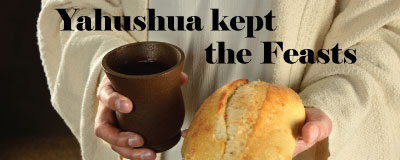
There were 3 Shabbat Feasts that were to be celebrated in Jerusalem – Passover, Pentecost and Tabernacles
Yahushua observed the Feast pilgrimages, which is even more powerful than simply talking about them (Passover (John 2:13), Pentecost / Feast of Weeks (John 5:1), Feast of Tabernacles (John 7:2, 10).
John 2:13 And the Jews’ Passover was at hand, and Jesus went up to Jerusalem.
John 5:1 After this there was a feast of the Jews; and Jesus went up to Jerusalem.
John 7:2,10 Now the Jew’s feast of tabernacles was at hand. 10 But when his brethren were gone up, then went he also up unto the feast, not openly, but as it were in secret.
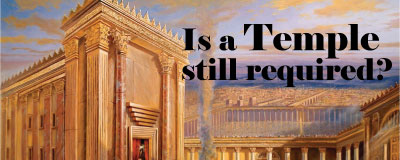
The Temple was for offering of sacrifices.
The Shabbat was from creation week. There was no temple at creation. Therefore a temple is not needed for keeping the Shabbat, or any of the other commandments.
A number of times (Leviticus 23, Lev 23:21, 31, 41; Exodus 12:14, 17, 24), Scripture states that the feasts are forever. There is no indication that they are to be kept only in Jerusalem.
For more points see:
Should we keep the biblical feasts outside the land of Israel?
from: Compelling Reasons to Keep the Feasts Today
While Jerusalem was indeed the center point for worship in the majority of the NT, we know according to Acts 18:11 Paul stayed in Corinth for a year and a half teaching so he would have kept the feasts there.
In Acts 28:30 Paul stayed for 2 years in Rome, so he would have kept the feasts there.
So yes, many people including Paul did travel to Jerusalem for the feasts, I believe we can safely assume he stayed in Rome and Corinth etc with those he taught and keep the feasts there as well as we see no mention of him going or sending anyone else to Jerusalem to keep the feasts.
In Acts 18:21 Paul states after his year and a half with the people of Corinth and he sailed to Syria (Acts 18:18) he had to keep the feast in Jerusalem, if it were a requirement for everyone to do so, why did he leave those behind when he left? Why not encourage them to come along if it were a requirement? [emphasis mine] It all sounds more like it was a personal conviction for him to be in Jerusalem for the coming feast. There is no mention of Him bouncing around back an forth to Jerusalem during his years long expeditions to these far off nations.
We are indeed not only allowed, but commanded to continue to keep the feasts in our own land. Paul and the many who he taught would have observed right there with him. The whole earth is Yahweh’s and His people are scattered all over it.
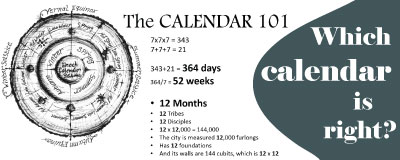
There are many calendars, even among those who keep the Shabbat – Enoch, Zadok, Lunar, Jewish, etc. This is a long search to determine which one is most accurate.
Even during the time of Yahushua, there was disagreement about the calendar. That is why there is debate over whether Yahushua ate the Passover meal or not. Yahushua ate the Passover lamb meal with His disciples on Tuesday evening according to the Essene/Zadok calendar, and then He was the Passover lamb for the people the next day, according to the Pharisaical calendar which was kept by the Temple priests during that time. It just happened that year for the two calendars to line up this way.
Yahushua told His disciples to go and prepare for the Passover meal
Mark 14:12 And the first day of unleavened bread, when they killed the passover, his disciples said unto him, Where wilt thou that we go and prepare that thou mayest eat the passover?
Clearly this was the very day that the lambs were being slaughtered according to this verse! These would be the lambs in the Essene quarters since the temple lambs were sacrificed the next day. Another clue comes from the next verse. A man carrying a water jar. Only women carried water jars. But in the Essene quarter of the city of Jerusalem (the south-west corner), the men did this job because the Essenes did not marry. The Essenes followed a different calendar than the Pharisees of the Temple. For the Essenes, Passover is always on a Tuesday evening.
In the “Book of Natsarim” (very similar to the Gospels in the New Testament, but with some different events and details included), two verses support the “different calendars” during Yahushua’s time.
ENL 20:34 It was now, for many, Pesach Eve – not all keeping it at the same time, for this was in dispute.
ENL 20:79 Pilate said, “You are a perverse race, over-concerned with unworldly things and ensnaring yourselves in your own net of goodness. You cannot even agree on the dates of your own festivals or the nature of your Elohim…
Around 200 BC, the Pharisees and Sadducees took over the Temple. They were not from the priestly Levitical line. So the people in authority in the Temple during Yahushua’s time were not following the Father’s Ways. Notice how many times in the book of John he writes the “Feast of the Jews” rather than the “Feasts of the Lord”. (John 2:13, 5:1, 6:4, 11:55, 19:42) These feasts had become the “people’s feasts” and not the Father’s. The people thought they were following Yahuah, but were not (similar to Hosea 2:11).
In calling the Feasts, “The Jew’s Feasts”, John was indicating that these were not the feasts that the disciples kept. In all other New Testament books, the feasts are simply referred to by name (ie. Unleavened Bread, and not called the “Feast of the Jews”). So two calendars were in existence – The true calendar which Yahushua and the disciples followed, and the calendar the religious leaders followed. When John mentions the “Feast of the Jews”, he is referring to the religious calendar of that day.
I follow the Zadok calendar (Zadokway.com) which, I believe, most closely aligns with what Yahushua and His disciples followed.
Yahuah’s calendar is luni-solar, using both the moon and the sun for telling time.
—————————-
More confirmation of the Zadok calendar.
And that “Day of Firstfruits” is after the completion of the days of unleavened bread (and not during). This is important for determining the day of Shavuot.
Acts 20:6 And we sailed away from Philippi after the days of unleavened bread, and came unto them to Troas in five days; where we abode seven days.
Acts 20:7 is definitely Day of Firstfruits, the first Shabbat of the counting toward Pentecost. (see the Greek, it says “first of the sabbaton”, which refers to the first of the Shabbats in counting up to Pentecost.)
It takes 3 days to sail from Troas to Philippi
Acts 16:11 Therefore loosing from Troas, we came with a straight course to Samothracia [day 1], and the next day to Neapolis [day 2]; And from thence to Philippi [day 3],
Acts 20:6 says Paul left the day after the days of unleavened bread, which ended on a Wednesday (Zadok calendar). Plus 3 days sailing, then Shabbat, then “Day of Firstfruits” [day 5, that they gathered with the other believers for this special day].
Feast of Shavuot on the Zadok calendar is the 15th day of the 3rd month. The three main feasts all are on the 15th of the month (Feast of unleavened Bread, Feast of Shavuot, Sukkot).
So this is further validation of the Zadok calendar which always has the Feast of Unleavened Bread ending on a Wednesday.
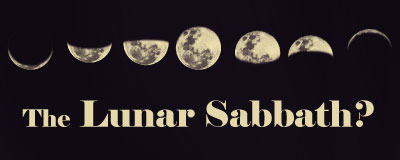
The moon is for the Feasts of the Lord (Appointed Times, Moedim), not to mark the Shabbat.
This is the same Hebrew word used in Genesis 1:14 (Moed, mistranslated as “seasons”).
Psalm 104:19 He appointed the moon for seasons (moed): the sun knoweth his going down.
Gen 1:14 And God said, Let there be lights in the firmament of the heaven to divide the day from the night; and let them be for signs, and for seasons (moed), and for days, and years:
Some people determine the Shabbat via the moon. This is called the Lunar-Shabbat. However, this is not according to Scripture. The full moon does not happen exactly every 28 days.
So a Lunar calendar would result in the “Sabbath” being on different days of the week each month.
The best proof that the Shabbat is every 7 days and not lunar based, comes from the determination of the Feast of Pentecost. Pentecost, meaning “50”, is always 50 days (7×7 +1) from Firstfruits. That is 7 Shabbats plus one day. This would not be possible if the Shabbat was realigned with the moon every month.
Leviticus 23:15-16
15 And ye shall count unto you from the morrow after the sabbath, from the day that ye brought the sheaf of the wave offering; seven sabbaths shall be complete:
16 Even unto the morrow after the seventh sabbath shall ye number fifty days; and ye shall offer a new meat offering unto the Lord.
Some people use only the sun to determine the calendar. This is also not scriptural. In Genesis 1:14, Yahuah says to use BOTH the sun and the moon. Yahuah’s calendar is “calculated” not “observed”. The Shabbat is always every 7th day. Work 6 days, rest 1 day, and has been thus from Genesis.
The Shabbat has never been “lost”. And it occurs on what is now called “Saturday”, from sunset Friday to sunset Saturday.
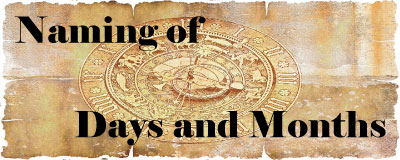
The name of the day Shabbat comes from Exodus 20:10
Ex 20:10 But the seventh day is the Shabbat of the Lord thy God: 11 For in six days the Lord made the heavens and the earth, the sea, and all that is in them, and rested on the seventh day; therefore the Lord blessed the Shabbat day and sanctified it. Yahuah has chosen HIS day and He named it. It is not for man to decide which day is the rest day. It is also not for man to re-name that day because Yahuah has already named it.
When Yahuah (God) created the world, He named the days “Day One”, “Day Two”, etc. He also numbered the months. Maybe that is why the verse says “So teach us to number our days, that we may apply our hearts unto wisdom.” Psalm 90:12
Even today some months are still numbered – September (7th), October(8th), November (9th), December (10). This numbering aligns with the beginning of the year in the spring which would be Month 1 (also called Nissan in the Bible because the Israelites adopted some Babylonian names when they went into exile.)
The ancient Babylonians named the days of the week. The 28-day lunar cycle was broken into four weeks, each consisting of seven days. The days of the week were named after the celestial bodies which the Babylonians observed: the Sun, the Moon, Mars, Venus, Mercury, Saturn, and Jupiter.
(source: Days of the Week Origin & Names)
Jews have been using a lunisolar calendar since Biblical times. The first commandment the Jewish People received as a nation was the commandment to determine the New Moon. The beginning of Exodus Chapter 12 says “This month is for you the first of months.”. The months were originally referred to in the Bible by number rather than name. Only four pre-exilic month names appear in the Tanakh (the Hebrew Bible): Aviv (first; literally “Spring”, but originally probably meant the ripening of barley), Ziv (second; literally “Light”), Ethanim (seventh; literally “Strong” in plural, perhaps referring to strong rains), and Bul (eighth), and all are Canaanite names, and at least two are Phoenician (Northern Canaanite). It is possible that all of the months were initially identifiable by native Jewish numbers or foreign Canaanite/Phoenician names, but other names do not appear in the Bible.
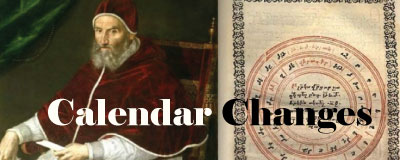
There have been calendar changes, but none that altered the sequence of the days of the week.
On 29 September 1582, Philip II of Spain decreed the change from the Julian to the Gregorian calendar. This affected much of Roman Catholic Europe, as Philip was at the time ruler over Spain and Portugal as well as much of Italy. In these territories, as well as in the Polish–Lithuanian Commonwealth (ruled by Anna Jagiellon) and in the Papal States, the new calendar was implemented on the date specified by the bull, with Julian Thursday, 4 October 1582, being followed by Gregorian Friday, 15 October.
The date changed, but the day of the week still was continuous, ie. “Thursday” was followed by “Friday”.
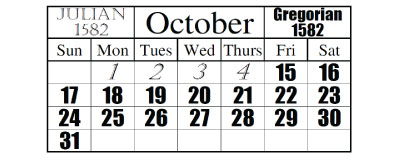
The other calendar change altered which day is considered the first day of the week. Monday as the first day of the week was decided by the International Standards Organization and was first published in 1988. Calendars in many European countries, in particular, now follow the ISO decision by starting the week on Monday. This is in violation to Yahuah’s plan of salvation!
Again, this did not change the Shabbat being on our Saturday.
The Bible speaks of the last days:
Daniel 7:25
And he shall speak great words against the most High, and shall wear out the saints of the most High, and think to change times and laws:
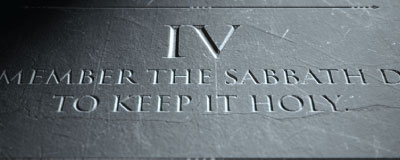
Nehemiah 13:17-18
“What evil thing is this that you do, by which you profane the Sabbath day? Did not your fathers do thus, and did not our God bring all this disaster [i.e., the destruction of Jerusalem] on us and on this city? Yet you bring added wrath on Israel by profaning the Sabbath.”
Jeremiah 17:27
But if ye will not hearken unto me to hallow the sabbath day, and not to bear a burden, even entering in at the gates of Jerusalem on the sabbath day; then will I kindle a fire in the gates thereof, and it shall devour the palaces of Jerusalem, and it shall not be quenched.
(fulfilled in Jeremiah 39:8; 2 Chronicles 36:19)
Exodus 31:14
14 Ye shall keep the sabbath therefore; for it is holy unto you: every one that defileth it shall surely be put to death: for whosoever doeth any work therein, that soul shall be cut off from among his people.
Ezekiel 20:13
But the house of Israel rebelled against me in the wilderness: … and my sabbaths they greatly polluted: then I said, I would pour out my fury upon them in the wilderness, to consume them.
Sounds serious to me! especially the part about being cut off from the people of Yahuah.
Mark 7:8
For laying aside the commandment of God, ye hold the tradition of men.
Sunday observance is a tradition of man. Yahuah never told us to keep Sunday holy.
Exodus 20:8
Remember the sabbath day, to keep it holy.
Isaiah 56:2
Blessed is the man that doeth this, and the son of man that layeth hold on it; that keepeth the sabbath from polluting it, and keepeth his hand from doing any evil.
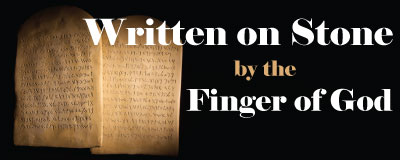
One has to wonder. Why would Yahuah write the 10 Commandments with His own finger, not once but twice, and on stone.
Something tells me they are important. No other words in the Bible were written in this dramatic a way. Nor were any other words delivered with thunder and lightening from the top of a burning mountain. The rest of the Bible was written by men under the instruction and revelation of Yahuah.
The Ark of the Covenant was a copy of what was in heaven.
The 10 Commandments are the only part of the Bible that is also in heaven!
The Commandments are for a “saved people”.
They are not for a “sinful people”.
Revelation 11:19
19 And the temple of God was opened in heaven, and there was seen in his temple the ark of his testament [covenant]: and there were lightnings, and voices, and thunderings, and an earthquake, and great hail.
[which is the same display as at Mt Sinai when the Commandments were given. Exodus 20:18]
1st time
Exodus 31:18 And he gave unto Moses, when he had made an end of communing with him upon mount Sinai, two tables of testimony, tables of stone, written with the finger of God.
2nd time
Exodus 34:1 And the Lord said unto Moses, Hew thee two tables of stone like unto the first: and I will write upon these tables the words that were in the first tables, which thou brakest.
Deuteronomy 10:1-4 At that time the Lord said to me, “Chisel out two stone tablets like the first ones and come up to me on the mountain. Also make a wooden chest. I will write on the tablets the words that were on the first tablets, which you broke. Then you are to put them in the chest.” So I made the ark out of acacia wood and chiseled out two stone tablets like the first ones, and I went up on the mountain with the two tablets in my hands. The Lord wrote on these tablets what he had written before, the Ten Commandments he had proclaimed to you on the mountain, out of the fire, on the day of the assembly. And the Lord gave them to me.
The Law was given by angels. But the commandments were written by the finger of Yahuah.
Acts 7:53 Who have received the law by the disposition of angels, and have not kept it.
The Old Testament and the Commandments were Yahuah’s, not Moses words.

The 10 Commandments are a Marriage Covenant between Yahuah and His people.
For far too long the 10 commandments have been taught as a list of rules to live by. What a sad and incomplete picture. The 10 Commandments are not a list of rules. They are the wedding vows that The Bridegroom speaks over the bride that she might profess them back to her Bridegroom in sincerity of heart and love. Just think of any wedding vows. Are they considered to be laws the couple “must” obey? Of course not, they are an expression of love to each other to forsake all others (that sounds like the 1st commandment!) When viewing them as wedding vows, the whole tone changes…
I promise to commit all of my love and devotion to You alone, I will not bring another god into our union.
I will love and adore You as the Master Creator and I will not bow down to worship Your created beings.
I will value Your Name as holy and powerful.
I will keep Shabbat set apart to spend with You.
I will honor the parents You chose for me-You do not make mistakes, by honoring them I honor You.
I will not murder anyone, for they are created in Your image.
I will not commit adultery to break a covenant vow I have formed with You.
I will not take anything that you have given to another.
I will not swear falsely against another who is created in Your image.
I will not set my desire upon anything else but You ❤️🙏❤️
By viewing these commands as wedding vows, it elevates Adonai as your Most Beloved and Cherished One, and makes your neighbor as important as yourself. This is not a list to simply obey, this is a lifestyle of expression of love to our Creator and to our fellow man.
By Anonymous
————————–
IF the couple is in love, they will keep the wedding vows without even needing to look at “the list” because they will love their partner so much that they will delight to go above and beyond, doing even more than they vowed.
Keeping the Shabbat is not an “obligation” but is out of love because we know that it is His day.
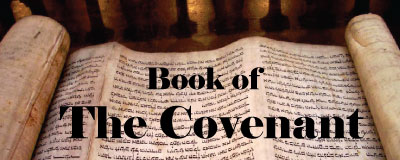
Moses did not write the 10 Commandments.
Only Yahuah wrote the 10 Commandments.
So then what did Moses write in Ex 34:27-28??
Exodus 34:27-28 Then the Lord said to Moses, “Write down these words, for in accordance with these words I have made a covenant with you and with Israel.” Moses was there with the Lord forty days and forty nights without eating bread or drinking water. And he wrote on the tablets the words of the covenant, the Ten Commandments.
There are no commas in Hebrew, so the last sentence could be translated:
“And he wrote on the tablets the words of the covenant of the Ten Commandments
Moses wrote the Book of the Covenant, which accompanied the 10 Commandments.
Moses did not write the 10 Commandments.
Moses was only a messenger. The Commandments were NOT Moses commandments, they were Yahuah’s commandments!
In Exodus 34 Moses was instructed to “write these words.”
“These words” refer to the preceding verses (Exodus 34:10-26) which were the Book of the Covenant. (Notice these verses are not the 10 Commandments. Two are the same and the rest are different.) Exodus 34:10 states, “Then the Lord said: I am making a covenant with you. Before all your people…” Exodus 34:27 completes the thought of what was instructed to be written by saying, “Write down these words, for in accordance with these words I have made a covenant with you and with Israel.” So, the verses between Exodus 34:10 and Exodus 34:27 are what was commanded to be written by Moses. According to Deuteronomy 10:1-4, God himself made the second inscription of the Ten Commandments.
Now, what exactly was part of the original Covenant? Not just the 10 Commandments! The original covenant covers Exodus 20:1-23:33.
However, the Israelites shrank back after Yahuah spoke the 10 commandments and they told Moses to speak with Yahuah because they were afraid. THEN Yahuah continued speaking Exodus 20:22-23:33.
ALL of this was part of the covenant, which included the Feasts of the Lord, and the section about letting a slave go free after 6 years.
So Yahuah ordered Nebuchadnezzar to destroy Jerusalem for breaking the covenant which contained Ex 20-23 which included the 10 Commandments and details of how to live out those commandments.
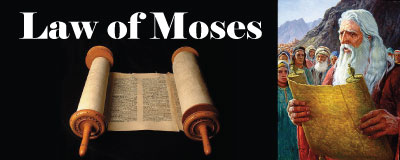
Law of Moses
The Law of Moses were the sacrificial laws. The 10 Commandments were never called “Moses Law”.
The Law does not invalidate any covenant. So the law of Moses does not invalidate the promise God made to Abram.
The Commandments were the marriage covenant between Yahuah and His People, and the Law of Moses was given to a people who were disobedient.
The Pharisees were the ones who misunderstood the Old Testament, and they were the ones to say “it was needful to circumcise and to keep the law of Moses.” (Acts 15:5)
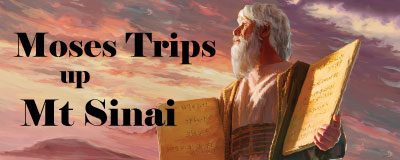
How can we know which parts of the Old Testament are relevant for us today?
Moses went up and down Mt 7 times. This is very important!! The first trips were to make arrangements for the people to receive the covenant (10 Commandments), not to get the Law.
The commandments were given as a covenant between Yahuah and His people. THEN the people broke the covenant, and Yahuah added the Levitical laws for all the sacrifices.
The Temple was given BEFORE the people broke the covenant because the people did not want to go up to meet Yahuah. They were afraid and held back (Hebrews 10:38-39). So Yahuah gave Moses the design of the Temple as a picture of Yahushua (Jesus) with them because they had rejected Yahuah’s presence with them in their heart.
The law of Moses was added (Gal 3:19) because of disobedience (the golden calf). The covenant (10 commandments) were not “added”. Only the Law of Moses (sacrificial laws) was added.
The New Covenant is “new” because it is written on our heart instead of written on stone (2 Corinthians 3:3).
ORIGINALLY when Israel was at Mount Sinai, God’s plan was for His 10 Commandments to be written in their hearts and His Holy Spirit to empower them to be a holy and living example on earth of a people who followed the eternal law of God.
BUT the people shrank back with fear, so they did not receive the indwelling Holy Spirit.
As a result, God gave them the Tabernacle (His Presence with them) and the Book of the Covenant (How to live with God in their midst, but not in their hearts). The Tabernacle is a picture of Yahushua in their midst.
When Moses was up the mountain for 40 days getting the written form of the 10 Commandments (since these will not be in their heart) and the detailed description of the Tabernacle (the presence of God living among them instead of them being the temple of God ), the people committed adultery with the golden calf. The 10 Commandments/Blood Pact had been broken and required the death of the party who broke it.
Moses prayed for the people, that God would not destroy them.
Then God wrote the 10 Commandments all over again. and added the sacrificial system to atone for their sins until the Messiah came. Yahushua would die in place of the people to satisfy
the death requirement of the broken blood pact.
The “Law of Moses” was the result of their sin. The “writing of ordinances” were added (Galatians 3:19, Deuteronomy 31:26 ). They were not the commandments. The sacrificial system was added because the people broke the covenant. This took the place of the people dying, until the Messiah came. With Yahushua’s death the sacrificial system was no longer required. That is what ended.
The 10 Commandments of God were Yahuah’s original design and they continue to be forever. The sin of the Israelites resulted in the addition of a system of sacrifices until Yahushua came; but their sin did not result in Yahuah declaring the 10 commandments.
We in the New Covenant have been given THE ORIGINAL PLAN given in the Assembly Day (“Church”) in a much more powerful way (since the Ruach/Spirit is within us with the conditions of marriage written in the tables of our heart).
EXODUS 19:5-6 Now then, if you truly listen to my voice and keep my covenant, you will be my special treasure among all peoples; because all the earth is mine. and you will be to me a kingdom of priests and a holy nation.
1 SPECIAL TREASURE POSSESSION
2 A KINGDOM OF PRIESTS
3 A QODESH/SET APART NATION
COMPARE WITH: 1 PETER 2:9 But you are a chosen race, a royal priesthood, a holy nation, a people belonging to God, that you may proclaim the praises of him who called you out of darkness into his marvelous light
This is the same promise to both Israel and to believers today! The difference is that we have been given the Holy Spirit to empower us to keep Yahuah’s commands. Yahuah’s commands have not changed.
Yahuah wanted the Israelites to be His people, but they backed away in fear and told Moses to go and talk to Yahuah because they were too afraid of Yahuah’s presence.
Exodus 20:18-19 And all the people witnessed the thunder, the lightning, the sound of the trumpet, and the smoking mountain; and when the people saw it, they trembled and stood afar off. Then they said to Moses: Speak with us, and we will listen to you; but let not God speak with us, lest we die.”
If they had gone and met God, they would have received His Holy Spirit.
Moses met Yahuah face to face and when he came down from the mountain, his face shone.
Because the Israelites were afraid, they now had to follow the commandments WITHOUT the help of Yahuah’s presence with them. This made the law a burden to them.
David had the Holy Spirit, so keeping Yahuah’s law was a delight!
In Acts, Yahushua told the disciples to wait until the Holy Spirit came. The Holy Spirit empowered them to keep Yahuah’s commandments from their hearts, something the Israelites could not do.
(Original source for above perspective:
Moses 7 Trips up Mt Sinai – Google Docs by Kirk Carmichael)

Yahuah made a covenant with the people of Israel at Mt Sinai (the 10 Commandments). This was a blood covenant, which meant that if one side of the agreement broke the covenant, they must die. It is much more serious to break the blood covenant than it is to break any of the laws. This is why Yahuah was so angry when the Israelites worshiped the Golden Calf and broke the blood covenant. That is why Yahuah wanted to destroy them and said He would start over with Moses, and build a nation from him (Exodus 32:10). Moses pleaded on behalf of the people that they would not die. But since the blood covenant was broken, one side must die. Instead of the Israelites dying, Yahuah Himself took on that role, and as Yahushua (Jesus), died in their place. On the cross, He said “It is finished”. The debt has been paid. If Yahushua was not Yahuah (God), then His death would not have satisfied the blood covenant.
The Levitical sacrificial system was set up BECAUSE they broke the 10 Commandment Covenant. Sacrifices were NOT what Yahuah wanted. He wanted the people to follow Him and keep the 10 Commandment Covenant from their heart. But they would not, so sacrifices were required until the ultimate sacrifice was made, the Son of God. (In the New Testament, the covenant is the same, but now it is written on our heart, and by the power of the Holy Spirit we are follow it. (Compare Jer 31:31-34 and Heb 8:8-11)
Psalm 40:6-8
6 Sacrifice and offering thou didst not desire; mine ears hast thou opened: burnt offering and sin offering hast thou not required.
7 Then said I, Lo, I come: in the volume of the book it is written of me,
8 I delight to do thy will, O my God: yea, thy law is within my heart.
Psalm 40:6-8 is identical to…
Hebrews 10:6-8
6 In burnt offerings and sacrifices for sin thou hast had no pleasure.
7 Then said I, Lo, I come (in the volume of the book it is written of me,) to do thy will, O God.
15 Whereof the Holy Ghost also is a witness to us: for after that he had said before,
16 This is the covenant that I will make with them after those days, saith the Lord, I will put my laws into their hearts, and in their minds will I write them;

Yahuah is a God of covenant. Each covenant builds on the previous. He never deletes one of His everlasting covenants.
The Commandments are “love”. They were the marriage covenant between Yahuah and Israel. Just think of any wedding vows. Are they considered to be laws the couple “must” obey? Of course not, they are an expression of love to each other to forsake all others (that sounds like the 1st commandment!)
Yahuah made a number of covenants for His people:
1. Noah 2. Abraham 3. Moses 4. David 5. New Covenant.
Was the promise of a seed that would crush the serpent, exclusive to Eve?
Was the promise of the rainbow exclusively to Noah?
Was the promise to Abraham that all nations would be blessed through him, only for Abraham?
Was the promise to David of a King and coming Messiah only for David?
Each covenant built on to the previous covenants. It did not replace or do away with the previous covenants.
Throughout the Bible, Yahuah desires a people who will walk with Him, a people who will be righteous and live with Him forever.
The covenants all build together for a Kingdom, the Kingdom of Yahuah in the New Earth. Yahushua spoke more about the Kingdom than anything else!
The book of Revelation brings all the covenants together!
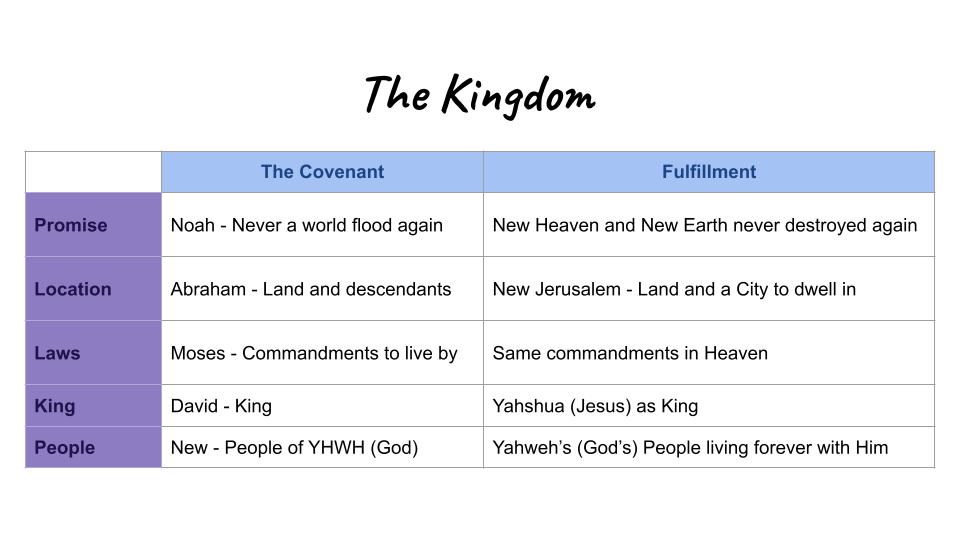
New heaven and a new earth (Rev 21:1)
The rainbow is round about the throne (Rev 4:3)
The New Jerusalem (Rev 21)
The Ark of the Covenant is in heaven (Rev 11:19) and Yahushua IS the Tabernacle (Rev 21:3)
Yahushua is King Of Kings, And Lord Of Lords (Rev 19:16)
The People of God (Rev 21:3)
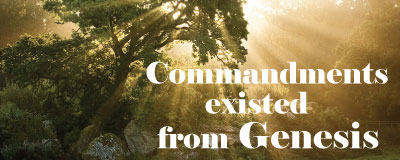
The 10 Commandments existed long before Mt Sinai. In fact, Yahuah (God) gave them to Adam and Eve.
Yahuah the Creator made the world and taught Adam. From Adam, and then through Noah, all people on the earth came. So if there are any similarities between what Yahuah said in the Bible and other religions, it is because the other peoples first received the information passed down from Noah.
Why did Yahuah judge the nations (eg. Egypt, Babylon) if they were not expected to follow His laws? They were committing sin and He punished them. That is not just and fair if they were not told the laws or expected to follow them. Every nation was expected to follow Yahuah’s commands.
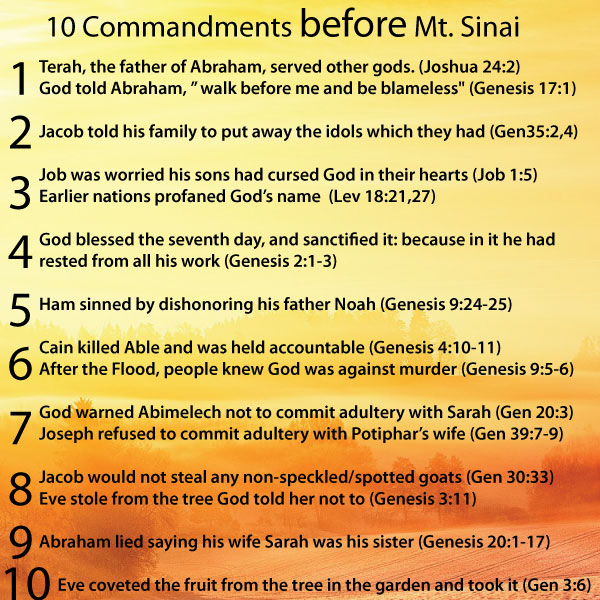
The commandments were given and known before Mt Sinai.
The Shabbat existed before Mt Sinai and so did the Passover meal (Exodus 16:22-30, Exodus 12)
Exodus 16:28 And the Lord said unto Moses, How long refuse ye to keep my commandments and my laws?
How could Yahuah say this to Moses if He had not already given the Commandments to the Israelites?
The Commandments already existed, but with many years of slavery, the Israelites had forgotten the commandments, laws and statutes that their father Abraham had known.
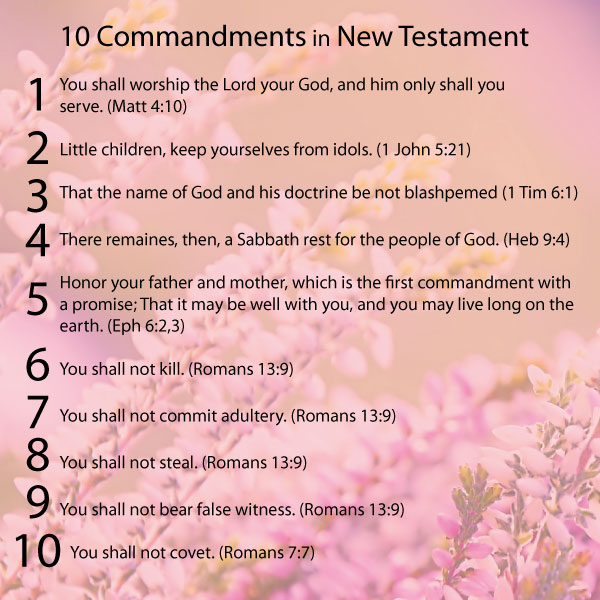
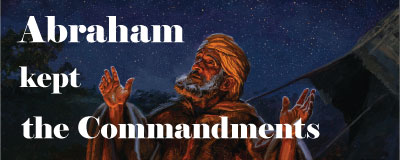
Hebrews 11:8 Abraham obeyed Yahuah.
Genesis 17:1 …the Lord appeared to Abram and said to him, “I am God Almighty; Walk before Me, and be blameless.”
The command to be blameless necessitates a law or covenant to exist or else what could he be “blamed” for breaking?
Abraham kept the commandments (Genesis 26:5).
Genesis 26:5 Abraham obeyed my voice, and kept my charge, my commandments, my statutes, and my laws.
Abraham also kept the Feast of First-fruits and the Feast of Tabernacles, which was one of the Shabbat Feasts of the Lord. (see Jubilees 15:1-3, 16:20-22,29)
Isaac celebrated the Feast of Weeks (Jubilees 22:1)
Noah to Abram and his sons celebrated the Feast days, but they were forgotten until Moses received them again on Mt Sinai.
Jubilees 15:1-2
1 And in the fifth year of the fourth week of this jubilee, [1979 A.M.] in the third month, in the middle of the month, Abram celebrated the feast of the first-fruits of the grain harvest.
2 And he offered new offerings on the altar, the first-fruits of the produce, unto the Lord, an heifer and a goat and a sheep on the altar as a burnt sacrifice unto the Lord; their fruit offerings and their drink offerings he offered upon the altar with frankincense.
Jubilees 16:20-22, 29
20 And he built there an altar to the Lord who had delivered him, and who was making him rejoice in the land of his sojourning, and he celebrated a festival of joy in this month seven days, near the altar which he had built at the Well of the Oath.
21 And he built booths for himself and for his servants on this festival, and he was the first to celebrate the feast of tabernacles on the earth.
22 And during these seven days he brought each day to the altar a burnt offering to the Lord, two oxen, two rams, seven sheep, one he-goat, for a sin offering, that he might atone thereby for himself and for his seed.
29 For this reason it is ordained on the heavenly tablets concerning Israel, that they shall celebrate the feast of tabernacles seven days with joy, in the seventh month, acceptable before the Lord -a statute for ever throughout their generations every year.
Jubilees 22:1
And it came to pass in the first week in the forty-fourth jubilee, in the second year, that is, the year in which Abraham died, that Isaac and Ishmael came from the Well of the Oath to celebrate the feast of weeks -that is, the feast of the first fruits of the harvest-to Abraham, their father, and Abraham rejoiced because his two sons had come.
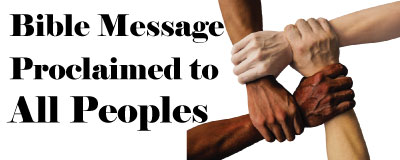
All people descended from Noah. Noah knew the Creator and told his sons about Him. However, over time, people have forgotten.
Today, the Roman Catholic and Protestant churches have also forgotten much of what is true. Instead of following the God of the Bible, they have decided to follow Greek thinking and celebrate pagan holidays.
Some of the native Americans, the Cheroke, did remember the name of Yahuah and called Him by that name (see YouTube video: The Cherokee Indian Name For The Great Spirit The Name of The Great Spirit, used by the Cherokee Indians, is documented in the film “Gone To Texas.”).
Until the 600s BC, people in China believed in the One God and their language has lots of characters composed from the Bible stories
(see these two YouTube videos:
The Gospel Message in Chinese Characters
and God in Ancient China).
The message of the Bible, from the creation of the earth, has gone over all the earth. Unfortunately it has been forgotten or changed. Still there are clues that it did not originate with any one people group, but actually started from the first people, Adam and Eve, and was passed down through Noah to all people.

There is no law for the Gentiles because Yahuah only deals with His people. He has no covenant with Gentiles, only with Israel.
Gentiles can only come into covenant with Yahuah by being grafted into Israel (Romans 11).
(By Israel, I do not mean the Jewish nation, or the Pharisees, or the Judiazers, or any other people who claim to be His people. Only Yahuah knows who is truly Israel after His own heart.)
The Shabbat was observed before the Israelites left Egypt (Ex 16:23), before Mt. Sinai, and before they broke the covenant. So it was not given because of disobedience.
The Shabbat was kept by the Patriarchs, Abraham, Isaac and Jacob. But during the Israelites time in slavery for over 200 years, they forgot Yahuah’s Appointed Times and Shabbats (Jubilees 15:19). That is the reason Yahuah had to re-tell them after the Exodus.
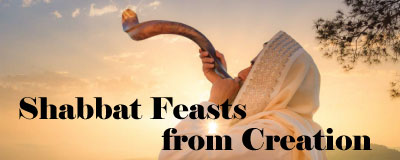
1. The moed, Feasts, were mentioned in Genesis 1:14 which was even before Adam was created, so definitely before man sinned. Just like the Shabbat was before sin entered the world.
Gen 1:14 And God said, Let there be lights in the firmament of the heaven to divide the day from the night; and let them be for signs, and for seasons [Hebrew “moed”, Appointed Times, aka Feasts], and for days, and years:
2. Noah and Abraham kept the Feast of Tabernacles (see Jubilees 15:1-2, 16:20-22, 29)
Isaac celebrated the Feast of Weeks (Jubilees 22:1)
Noah to Abram and his sons celebrated the Feast days, but they were forgotten until Moses received them again on Mt Sinai
Jubilees 6:16-19 He set His bow in the cloud for a sign of the eternal covenant that there
17 should not again be a flood on the earth to destroy it all the days of the earth. For this reason it is ordained and written on the heavenly tablets, that they should celebrate the feast of weeks in this
18 month once a year, to renew the covenant every year. And this whole festival was celebrated in heaven from the day of creation till the days of Noah -twenty-six jubilees and five weeks of years [1309-1659 A.M.]: and Noah and his sons observed it for seven jubilees and one week of years, till the day of Noah’s death, and from the day of Noah’s death his sons did away with (it) until the days of Abraham, and
19 they eat blood. But Abraham observed it, and Isaac and Jacob and his children observed it up to thy days, and in thy days the children of Israel forgot it until ye celebrated it anew on this mountain.
Here is the book of Jubilees online. Search for “feasts”.
http://individual.utoronto.ca/tldonaldson/Jubilees.html
3. Exodus 23 gives the Feasts and this is well before the Israelites sinned with the Golden Calf in Exodus 32.
14 Three times thou shalt keep a feast unto me in the year.
15 Thou shalt keep the feast of unleavened bread: (thou shalt eat unleavened bread seven days, as I commanded thee, in the time appointed of the month Abib; for in it thou camest out from Egypt: and none shall appear before me empty:)
16 And the feast of harvest, the firstfruits of thy labours, which thou hast sown in the field: and the feast of ingathering, which is in the end of the year, when thou hast gathered in thy labours out of the field.
17 Three times in the year all thy males shall appear before the Lord God.
Yahuah exclaims, “How long do you refuse to keep My commandments and My laws?” (Exodus 16:28). God clearly speaks of both His “commandments and … laws” as already existing and in force well before He listed the Ten Commandments verbally at Mt. Sinai, as described four chapters later! Therefore, the Ten Commandments were only codified —written in stone as part of a formal covenant—at Mt. Sinai. Scripture clearly shows that they existed and were in force well before then.
In Exodus 16:4, several days to several weeks before God established His covenant with the Israelites at Mt. Sinai, we find God giving them a test to see “whether they will walk in My law or not.” His test involved whether they would rest on the seventh-day Shabbat.
4. Passover, the sacrifice of the Lamb of Yahuah, was from the foundation of the earth, before sin entered.
Rev 13:8 … the Lamb slain from the foundation of the world.
Passover was for sure before the Golden Calf incident! It was before they even left Egypt.
This is an excellent article:
Were the Feast Days Observed in the book of Genesis? by Peter Salemi

Yahushua (Jesus) said to the Pharisees:
Matthew 19:8 …Moses because of the hardness of your hearts suffered you to put away your wives: but from the BEGINNING it was not so.
This is a very important verse. Many “rules” were added by Yahuah because of the hardness of the people’s hearts, but these were not “from the beginning”. The Levitical sacrificial system was added after the people sinned with the Golden Calf. Tassels on their garments were added when they were not keeping the Shabbat (Num 15:37-41).
We must understand what was “from the beginning”, ie, from Genesis. What Yahuah instituted before sin entered the world, is what is eternal.
In Genesis 1:4, Yahuah established the Feasts, modeium (Appointed Times). The original Hebrew does not say “seasons”. (see below for more details on the Feasts being celebrated before Moses time.)
In Genesis 2:2-3 Yahuah established the seventh day of rest. The Seventh Day Shabbat is the only day that has 3 blessings: Yahuah blessed it, sanctified it and rested on it. Yahuah has not changed it for any other day.
In Genesis 1:24 eating clean was designed into creation. Yahuah made a distinction between “cattle”, “creeping things” and “beast of the earth”. They are different anatomically, so the clean animals can be killed without suffering because there is only one vein going to the brain, so it can be slaughtered so the animal dies within a second before feeling pain. This is not true of unclean animals.
https://www.youtube.com/watch?v=DA7-l89UOuE
The commandments were from the beginning. Cain could not be guilty of murder if the command did not already exist. Satan even broke the commandments in heaven before creation. So they had to exist in order to be broken!
In Genesis, Adam and Eve kept the Shabbat their first day of life. So they started their life on a rest-day not a work-day. It was a day to spend time with their Creator. And forever, the Shabbat as a rest-day, is a constant hope of a future rest-day when we will rest from the evils of Satan, and live with the Creator once again. Hallelujah!
The Shabbat was blessing and sanctified (made Holy) by Yahuah while the world was still perfect, before sin, long before the Israelites or Jews. So the Shabbat is not tied to them, it is tied to creation. And it was made “for man” right from the beginning so we could have a rest. It was a gift!
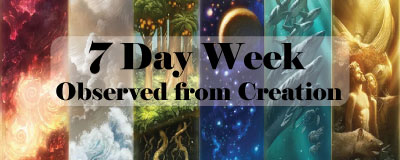
Noah kept the 7 day calendar (Gen 8:10,12,14).
Seven days was used to count time by:
Yahuah – Genesis 7:4,10
Noah – Genesis 8:10,12
Jacob/Rachel – Gen 29:27,28
Joseph – Gen 50:10
Yahuah, Egypt plagues – Exodus 7:25; Exodus 12:15
Yahuah, Feasts – Exodus 12:16,19; Ex 13:6
For each day of Creation, there is a corresponding major event during that 1000 years of earth history. In fact, this is a quick summary of the Bible! We are now living at the end of the “Day 6” thousand years.
Day # – creation week event – historical event
Day 1 day and night — entrance of sin (good and evil)
Day 2 firmament, waters divided — Noah and the Flood
Day 3 dry land appears, plants — Moses parted the Red Sea
Day 4 Sun, Moon, stars — Yahushua (Jesus)
Day 5 birds and fish — Holy Spirit birth of Church
Day 6 animals and man — the anit-Christ
Day 7 spiritual rest — the Millennium
Day 8 Eternity — New Heaven and New Earth
During the last 1000 years, the “7th Day”, will be the Millennium, the time of rest for the earth, when Satan will be bound for 1000 years.
Could God Have a 6,000 Year Plan?

In Numbers 15:32-36, a man was commanded to be killed because he was working (gathering sticks for a fire) on the Shabbat.
This is the only recorded incident of someone being stoned after breaking the Shabbat, shortly after the 10 Commandments were given to the nation of Israel. It was important, at the beginning, to show the people just how serious Yahuah took the Shabbat. Just as in the New Testament, Ananias, with Sapphira were killed for lying to the Holy Spirit. The dramatic deaths of Ananias and Sapphira served to warn the church. “Great fear seized the whole church” (Acts 5:11). Right away, in the church’s infancy, Yahuah made it plain that hypocrisy was not going to be tolerated, and His judgment of Ananias and Sapphira helped guard the church against future pretense.
By reading through the Old Testament, I came to a deep understanding of the love of Yahuah.
Nehemiah 9:17 You are a forgiving God, gracious and compassionate, slow to anger and abounding in love.
And many more verses: Deuteronomy 4:31, Psalm 86:5, Psalm 108:4, Psalm 145:8, Joel 2:13, etc.
And the book of Hosea.
Reading through the entire Old Testament, one will discover that the God of the Old Testament is the most patient, loving God possible.
The people in Canaan were wicked during Abrahams time, but Yahuah still waited another 400 years before punishing them. And only those who were descendants of the Nephilim were to be destroyed.
The Nephilim were alive before the Flood and were the ones Yahuah destroyed by the Flood because they were the result of fallen angels mating with the daughters of men. These were not humans! All the righteous people died before the Flood so that they would not experience the wrath of Yahuah (Jasher 4:20, 5:21). This will happen again at the end of time when Yahuah pours down His wrath. All the righteous will be protected or removed from earth so that they do not experience the wrath of Yahuah.
Jasher 4:20 And all men who walked in the ways of the Lord, died in those days, before the Lord brought the evil upon man which he had declared, for this was from the Lord, that they should not see the evil which the Lord spoke of concerning the sons of men.
Jasher 5:21 And all the sons of men who knew the Lord, died in that year before the Lord brought evil upon them; for the Lord willed them to die, so as not to behold the evil that God would bring upon their brothers and relatives, as he had so declared to do.
In the New Testament, we see the full wrath of Yahuah to an extent never seen in the Old Testament, when He will unleash His wrath at the end of time. THEN we will really see how much He cannot stand unholiness. For now, we are shielded by His mercy and love, under the blood of Yahushua.
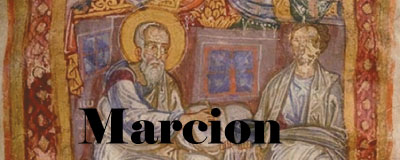
The idea that the God of the Old Testament was evil, angry, vengeful, and full of wrath originated with Marcion (1st century).
Marcion was the one to divide the Bible into Old and New Testaments, not God. Marcion coined the terms “Old Testament” and “New Testament”. Such names and division did not exist prior to him.
Marcion was a heretic but his ideas have lived on in Christianity.
Marcion’s central thesis:
* The Christian Gospel is wholly a Gospel of Love to the absolute exclusion of Law.
* The God revealed in the Old Testament had nothing in common with the God of Jesus Christ.
The Old Testament God was vengeful; the more Christ-like God of the New Testament was not at all wrathful, but only ever loving to everyone.
The premise of Marcionism is that many of the teachings of Christ are incompatible with the actions of Yahuah, the God of the Old Testament.
Focusing on the Pauline traditions of the Gospel, Marcion felt that all other conceptions of the Gospel were opposed to the truth. He regarded Paul’s arguments of law and gospel, wrath and grace, works and faith, flesh and spirit, sin and righteousness, and death and life as the essence of religious truth. He ascribed these aspects and characteristics as two principles: the righteous and wrathful God of the Old Testament, the creator of the world, and a second God of the Gospel who is purely love and mercy and who was revealed by Jesus.
Marcion declared that Christianity was distinct from and in opposition to Judaism. He rejected the entire Hebrew Bible, and declared that the God of the Hebrew Bible was a lesser demiurge, who had created the earth, but was (de facto) the source of evil.
It is worth contemplating modern day Christianity in light of the above.
How many Christian beliefs actually stem from Marcion’s heretical views??!
For more information on Marcion, search online for “marcion of sinope thesis”.
There is plenty of documentation.

Interesting that there are two things in the Bible associated with “not buying or selling”.
– the Mark of the Beast
– the Shabbat
One is the mark of Satan, the other is a sign of Yahuah’s people.
Yahuah asked His People to keep the Shabbat as a sign that they were His people. (Exodus 31:13,17; Ezekiel 20:12)
The first 4 Commandments set us apart from all other peoples. The last 6 commandments are more universally found in other faiths. So the first 4 Commandments are our distinguishing mark from all other people’s or faiths.
Nehemiah 10:31
And if the people of the land bring ware or any victuals on the sabbath day to sell, that we would not buy it of them on the sabbath, or on the holy day: and that we would leave the seventh year, and the exaction of every debt.
Amos 8:5
Saying, When will the new moon be gone, that we may sell corn? and the sabbath, that we may set forth wheat, making the ephah small, and the shekel great, and falsifying the balances by deceit?
Revelation 13:17
And that no man might buy or sell, save he that had the mark, or the name of the beast, or the number of his name.

The word “Sabbath” or “Shabbat” is actually a title for the day of rest. “ ‘The seventh day is a Sabbath to the LORD your God’ ” (Exod. 20:10)
The name of the day is “seventh” but the title of the day is “Shabbat.” This is the practice of the Hebrews in both biblical times and now to name the days using numerals. “Shabbat” defines the special role of the seventh day as a day of rest. While true that eventually it came to be used as a name, biblically and theologically, “Shabbat” is a title.
The seventh day is always a day of rest, but some other days are also called “Shabbat”. These are the Holy Days that are part of the Feasts of the Lord.
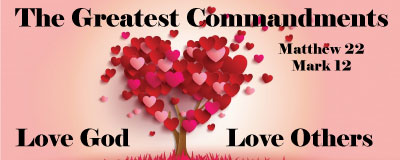
Yahushua was not making a new commandment of “love”. He was quoting from Moses writings in the Old Testament.
The two commandments to love God and to love your neighbor are quotations from the Hebrew Bible (Deut 6:5, 10:12, 11:1, 13, 22, 13:3, 19:9, 30:6 and Leviticus 19:18). Yahushua was not saying something new—he was stating what had always been there.
If He had deleted any of the commandments the Religious leaders would have stoned Him on the spot. Instead they said “Well spoken””!! (Mark 12:32)
The fact is, He was stating the summary of the 10 Commandments which everyone listening to Him knew by heart. He was summarizing them, not replacing them!
The commandments show how to love. Love is an action, not just an emotion or feeling.
Yahuah told us how to love him in the first 4 commandments – no other gods, no graven images, honor His Name (something most Christians have omitted as well because Yahuah’s Name has been removed from the Bible), and keep the Shabbat (not done by most Christians).
The next 6 commandments are how to love our neighbor.
In Matthew 5, Yahushua expanded on the 10 Commandments. He did not delete them, He made them “harder”. He did not make them “easier”. (Matt 5:17, 20, 22, 28, 32, 34, 39, 44)
But we also have the Holy Spirit to help us obey the heart of the Father. That is why Yahushua’s burden is light.
Matthew 11:29-30 Take my yoke upon you, and learn of me; for I am meek and lowly in heart: and ye shall find rest unto your souls. 30 For my yoke is easy, and my burden is light.
None of the commandments were cancelled. They were all KEPT, AND made harder.
So we really need to consider the Shabbat to understand exactly HOW it is to be kept. It is not cancelled either. None of the commandments were removed or deleted.
The whole point of the Bible is to love God and love people. Any interpretation of the Bible or its parts that allows us to violate either of those prime commandments is necessarily in error.
Let no debt remain outstanding, except the continuing debt to love one another, for whoever loves others has fulfilled the law. The commandments, “You shall not commit adultery,” “You shall not murder,” “You shall not steal,” “You shall not covet,” and whatever other command there may be, are summed up in this one command: “Love your neighbor as yourself.” Love does no harm to a neighbor. Therefore love is the fulfillment of the law. (Romans 13:8-10)

John 14:15
If ye love me, keep my commandments.
John 14:21
He that hath my commandments, and keepeth them, he it is that loveth me: and he that loveth me shall be loved of my Father, and I will love him, and will manifest myself to him.
[Think of above in terms of wedding night. Only the Bride will experience this.]
John 14:23
Jesus answered and said unto him, If a man love me, he will keep my words: and my Father will love him, and we will come unto him, and make our abode with him. 24 Anyone who does not love me will not obey my teaching. These words you hear are not my own; they belong to the Father who sent me. 31 but he [Holy Spirit] comes so that the world may learn that I love the Father and do exactly what my Father has commanded me.
Yahushua’s commands are one and the same as the Father’s commands.
John 15:9
As the Father hath loved me, so have I loved you: continue ye in my love. 10 If ye keep my commandments, ye shall abide in my love; even as I have kept my Father’s commandments, and abide in his love.
What is “love” according to the Bible? It is to do the commands of the Father!
The commandments show how to love. Love is an action, not just an emotion or feeling.
Yahuah told us how He wants us to show our love for Him.
Mark 12:30 Love the Lord your God with all your heart and with all your soul and with all your mind and with all your strength.’ 31 The second is this: ‘Love your neighbor as yourself.’ There is no commandment greater than these.”
Galatians 5:14 For the entire law is fulfilled in keeping this one command: “Love your neighbor as yourself.”
If we worship Him everyday in spirit and in truth, we will follow Him and do as He asks. One thing He asks is that we keep the Shabbat as a sign that we are looking forward to Him reigning for the Millennium!
One way to show our love for Yahushua is to honor the day that is His, the Shabbat.
Whoever loves Yahuah will have no other gods, will honor His Name, and keep His Shabbat.
Which is contained in the Lord’s Prayer:
Our Father in Heaven (no other gods)
Hallowed be thy Name (honor His name)
Thy Kingdom come (keep the Shabbat, which is the Kingdom age, the Millennium)
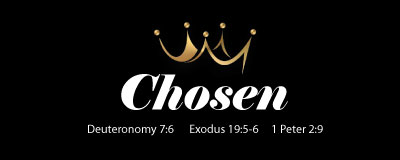
Anything the Israelites were given was for them to show the world what Yahuah wanted all men to know and do, but instead they tried to keep the message only for themselves. They failed in that regard. And many people, in error, believe that the Old Testament was only for the Jews. So the church today continues to propagate the error of the Israelites.
Remember that the Shabbat was first Yahuah’s. He gave it to the Israelites to keep because they were to be His people living as a light and example to all nations, showing everyone the ways of Yahuah.
The Israelites failed in various ways, just like we do as well. That does not invalidate the truth of Yahuah. The Shabbat still belongs to Him. It is still His. And His people desire to follow His Ways, one of those being to rest on the Shabbat from our daily work, in remembrance, and also in Hope of the future when He will reign forever, and we will enter our Eternal Rest.
Not all physical Israel is spiritual Israel.
Note that the olive tree ROOT is not the Jewish people (Romans 11). They are branches which can be broken off and grafted back in. Just like the Christians are grafted in after being cut from a wild olive (wild as in not following God’s rules). What is the root then? That is the word of Yahuah. Yahuah does not change His rules. They are eternal.
Yahushua sent His disciples into” all the world”. And to “help” that happen, He sent persecution so they would be scattered over the face of the earth.
Matthew 24:14 And this gospel of the kingdom shall be preached in all the world for a witness unto all nations; and then shall the end come.
In Old Testament, gentiles were not counted as a people.
The gentiles are STILL not counted as a people. Yahuah has no covenant with Gentiles, only with Israel.
Gentiles can only come into covenant with Yahuah by being grafted into Israel (Romans 11).
(By Israel, I do not mean the Jewish nation, or the Pharisees, or the Judiazers, or any other people who claim to be His people. Only Yahuah knows who is truly Israel after His own heart.)
Anyone in the Old Testament could join with Israel (Caleb was not a born Israelite). Interesting that one Israelite (Joshua) and one non-Israelite (Caleb) were the only ones to survive the wilderness and enter the promised land.
Yahuah has been gathering His people down through the ages, and His People are called Yishrael (not the present day nation of Israel or Jews). This is the same flock of Yahushua that He led in the wilderness.
1 Corinthians 10:4
And did all drink the same spiritual drink: for they drank of that spiritual Rock that followed them: and that Rock was Christ.
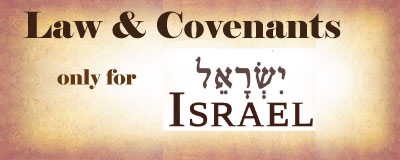
Romans 9:4 Who are Israelites; to whom pertaineth the adoption, and the glory, and the covenants, and the giving of the law, and the service of God, and the promises;
Important verses that follow:
6 Not as though the word of God hath taken none effect. For they are not all Israel, which are of Israel: 7 Neither, because they are the seed of Abraham, are they all children: but, In Isaac shall thy seed be called. 8 That is, They which are the children of the flesh, these are not the children of God: but the children of the promise are counted for the seed.
The ones to whom “the glory, and the covenants, and the giving of the law, and the service of God, and the promises;” is to the children of “the promise”, that is the spiritual seed, not the fleshly seed.
Who is the “spiritual seed”? Let’s look at two other passages:
The mystery that Paul speaks about in Ephesians 3 is that now the gentiles are joined to Israel. We are no longer gentiles but now share the covenants of Yahuah’s chosen people. Yahuah does not have a covenant with the gentiles, He only has a covenant with His people. When we are grafted into the Olive Tree, we become His people and become spiritual Israelites and have the same covenant as all His people.
(Note, “Israelites” is not the people of the nation of Israel, nor the Pharisees who added to Yahuah’s Word with all their traditions, nor are they Christians who changed times and Feasts. “Israel” is Yahuah’s people, wherever they are.)
Ephesians 2:11-22
11 Wherefore remember, that ye being in time past Gentiles in the flesh, who are called Uncircumcision by that which is called the Circumcision in the flesh made by hands; 12 That at that time ye were without Christ, being aliens from the commonwealth of Israel, and strangers from the covenants of promise, having no hope, and without God in the world: 13 But now in Christ Jesus ye who sometimes were far off are made nigh by the blood of Christ. 14 For he is our peace, who hath made both one, and hath broken down the middle wall of partition between us; 15 Having abolished in the law of commandments contained in ordinances; for to make in himself of twain one new man, so making peace; 16 And that he might reconcile both unto God in one body by the cross, having slain the enmity thereby: 17 And came and preached peace to you which were afar off, and to them that were nigh. 18 For through him we both have access by one Spirit unto the Father. 19 Now therefore ye are no more strangers and foreigners, but fellowcitizens with the saints, and of the household of God; 20 And are built upon the foundation of the apostles and prophets, Jesus Christ himself being the chief corner stone; 21 In whom all the building fitly framed together groweth unto an holy temple in the Lord: 22 In whom ye also are builded together for an habitation of God through the Spirit.
Romans 11:17-24
17 And if some of the branches be broken off, and thou, being a wild olive tree, wert grafted in among them, and with them partakest of the root and fatness of the olive tree; 18 Boast not against the branches. But if thou boast, thou bearest not the root, but the root thee. 19 Thou wilt say then, The branches were broken off, that I might be grafted in. 20 Well; because of unbelief they were broken off, and thou standest by faith. Be not highminded, but fear: 21 For if God spared not the natural branches, take heed lest he also spare not thee. 22 Behold therefore the goodness and severity of God: on them which fell, severity; but toward thee, goodness, if thou continue in his goodness: otherwise thou also shalt be cut off. 23 And they also, if they abide not still in unbelief, shall be grafted in: for God is able to graft them in again. 24 For if thou wert cut out of the olive tree which is wild by nature, and wert grafted contrary to nature into a good olive tree: how much more shall these, which be the natural branches, be grafted into their own olive tree?
It is clear that the gentiles were the people who were “far away” from Yahuah, but the Israelites were “close to” Yahuah.
The gentiles were “lost” because they were “strangers from the covenants of promise, having no hope, and without God in the world.”
But Yahuah in His love and mercy brought the lost gentiles into His people called by the name Israel. This is a spiritual Israel.
Everyone, both Israelite and Gentile, must remain in the Root or else they will be branches broken off from Israel.
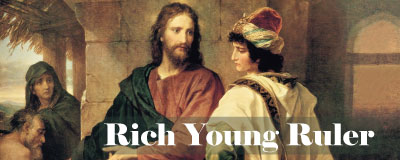
Yahushua went through the “easy to identify” commandments first, the ones relating to one’s neighbour.
Then in Matt 19:21 “sell all that you have.. and come follow me” Yahushua started on the first four commandments, the first being “Thou shalt worship the Lord your God and Him only shall you serve”. The rich man failed this commandment. So Yahushua never continued on to the next commandments that are for how we relate to Yahuah (the Shabbat being included in these). Interesting that the Shabbat would have been the very last commandment to be included. Not because it is the least, but because it is the final commandment in our walk as we come into closer intimacy with Yahuah.
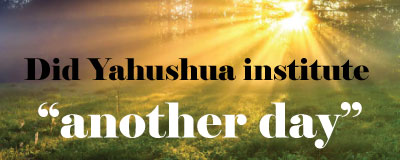
Hebrews 4:8 is referring to Joshua in the Old Testament, not Yahushua (Jesus). Some translations write “Jesus” when in fact it should be “Joshua”.
Hebrews 4 is not discussing the Shabbat but what the Shabbat represents or symbolized – that is the rest and blessing that people were supposed to enjoy by its weekly reminders.
Since the passage in Hebrews 4 quotes from Ps 95:7, 8, 11 it is discussing the rebellion at Meribah (Ex 17:7) where God declared that the rebellious Israelites would never enter the rest of the Promised Land. They wandered the desert for 40 years (v9) until that generation had died out. Psalm 95 then makes an appeal to not repeat this same behavior but to enter that rest in God.
The writer of Hebrews uses exactly the same language, addressed to the Hebrews based on the same passage of Ps 95 – do not rebel but accept Yahushua as High priest and enter His rest as promised in Matt 11:28-30
28 Come unto me, all ye that labour and are heavy laden, and I will give you rest. 29 Take my yoke upon you, and learn of me; for I am meek and lowly in heart: and ye shall find rest unto your souls. 30 For my yoke is easy, and my burden is light.
Thus, Heb 3 & 4 is no argument for or against the weekly Shabbat – it is an appeal to serve Yahushua and enter His rest immediately, “Today”.
Source of above:
https://hermeneutics.stackexchange.com/questions/52345/which-day-is-the-another-day-mentioned-in-hebrews-48

In Genesis, Yahuah was the first One to keep the Shabbat. For Adam and Eve, it was their first day of life, a day of fellowship with their Creator. That is why “the Shabbat was made for man”.
The Shabbat did not start at Mt Sinai with Moses.
Yahuah did not “make the Shabbat holy” for the Israelites. It was already holy. He told them to “keep it holy”.
In fact, the Shabbat existed before sin even entered the world! And it will last through the Millennium and into eternity.
The Shabbat was certainly not only for the Jews or Israelites. Even slaves and animals were to have the day off work!

In the New Testament, Yahushua is …
… the bread of life. Does that mean we don’t eat anymore?
… love. Does that mean we don’t need to love anymore?
… life. Does that mean we don’t need to live anymore?
… truth. Does that mean we don’t to tell the truth anymore?
… the way. Does that mean we can go anyway we want?
The Shabbat’s fulfillment spiritually does not negate it’s physical or natural practice.
In Genesis 2, Yahuah declared the Shabbat Holy while the earth was perfect, before sin. In a perfect world, He established a few things … marriage, procreation, diet, work and rest.
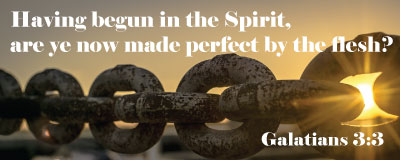
The whole discussion in the previous chapter, Galatians 2, was about circumcision (or flesh) and whether it is required of the gentiles. THIS is what Galatians 3 concludes is not required. THIS is the law being spoken about.
Galatians 3:1-3
2 This only would I learn of you, Received ye the Spirit by the works of the law, or by the hearing of faith? 3 Are ye so foolish? having begun in the Spirit, are ye now made perfect by the flesh?
The 10 Commandments are not law, they are covenant. They were kept in the “Ark of the Covenant”. They were not kept in the “Ark of the Law.”
Notice in Revelation, that those who keep the commandments and have faith in Yahushua, are the saints, the remnant. The law is not mentioned.
Many have faith in Jesus; few have faith AND keep the commandments.
Revelation 12:17
And the dragon was wroth with the woman, and went to make war with the remnant of her seed, which keep the commandments of God, and have the testimony of Jesus Christ.
Revelation 14:12
Here is the patience of the saints: here are they that keep the commandments of God, and the faith of Jesus.
The Pharisees believed that circumcision was required to become a child of God (Israelite). Paul was saying circumcision was not required.
The “law” Paul was referring to (Gal 3) that does not save, was the law of circumcision (Gal 2 discussion). In fact, that law never saved. This was a huge discussion in the early church because the Pharisees said one had to be circumcised to become of full Israelite. In the Old Testament, circumcision was only required for partaking of the Passover Lamb. Since Yahushua became the Passover Lamb, the lamb sacrifice was done away with and replaced by the bread and wine on Passover as a memorial.
Circumcision was long before Mt Sinai, and was the sign of the covenant Yahuah made with Abraham. However, circumcision was not the basis for salvation. Abraham was saved by faith (Hebrews 11).
Yahuah wants a circumcised heart. And that is what is presented again in the New Testament. This was His desire from the beginning. Circumcision of the flesh was to be a visual reminder to keep the covenant. After the cross, the covenant is to be written on our heart and kept.
Deuteronomy 30:6
And the Lord thy God will circumcise thine heart, and the heart of thy seed, to love the Lord thy God with all thine heart, and with all thy soul, that thou mayest live.
Jeremiah 4:4
Circumcise yourselves to the Lord, and take away the foreskins of your heart, ye men of Judah and inhabitants of Jerusalem: lest my fury come forth like fire, and burn that none can quench it, because of the evil of your doings.
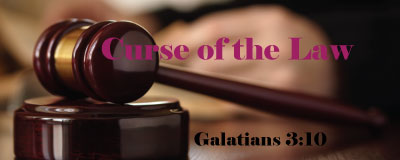
Paul quotes from 11 different Old Testament verses in Galatians 3 alone! A solid understanding of the Old Testament is key to reading Galatians. His quote in Gal 3:10 is from Deuteronomy 27:26 “…as it is written: ‘Cursed is everyone who does not continue to do all that is written in the Book of the Law.'”
Following the Law results in blessings.
Not following the law results in a curse.
The law itself is not cursed.
Deuteronomy 28 begins with the blessings for following the law, and ends with the curses for not following the law.
The essence of what was happening in Deuteronomy 27 is summed up in verses 9-10 of that chapter: “Then Moses and the priests, the Levites, spoke to all Israel, saying, Look and hear, O Israel: This day you have become the people of the Lord your God. Therefore you shall listen to the voice of the LORD your God, and you shall keep his commandments and his statutes that I am commanding you today.
Yahuah had rescued the Israelites from Egyptian slavery, and now the second generation was about to enter the Promised Land. Yahuah’s resounding advice was essentially: “Keep the commandments!”
Acting out the importance of this, Moses commanded the tribes of Israel (after they entered Canaan) to divide into two units. Half of Israel was to climb Mount Ebal; and the other half, Mount Gerizim. These two mountains are approximately in the middle of the land of Canaan.
People on top of a mountain were to shout a series of statements, all related to “curses” for not obeying Yahuah’s law. The people on the other top of the mountain were to shout, “Amen!” at the end of each statement. The words that Paul quoted were the last words shouted. What a dramatic way to emphasize the importance of keeping Yahuah’s law!
From: https://lifehopeandtruth.com/bible/law-and-grace/curse-of-the-law/
The foundation of the New Testament is the Old Testament. A house built on sand, without a solid rock foundation, will be swept away. (Matthew 7:24-27)
If one does not understand the Old Testament, then they will misread the New Testament.
Galatians 3:13 Christ redeemed us from the curse of the law.
He did not redeem us from the law itself. He redeemed us from the “curse” of the law. The “curse of the law” is death because we have all broken the law. The law still stands today. Otherwise, on what basis will all people be judged at the end of time?

A true citizen of Heaven will love the laws of Yahuah and these will be written in his heart. “He who does these things will live by them.”
In Galatians 3:12, Paul is quoting Ezekiel 20:11
Galatians 3:11-13
11 But that no man is justified by the law in the sight of God, it is evident: for, The just shall live by faith.
12 And the law is not of faith: but, The man that doeth them shall live in them.
13 Christ hath redeemed us from the curse of the law, being made a curse for us: for it is written, Cursed is every one that hangeth on a tree:
Ezekiel 20:10-12
10 Wherefore I caused them to go forth out of the land of Egypt, and brought them into the wilderness.
11 And I gave them my statutes, and shewed them my judgments, which if a man do, he shall even live in them.
12 Moreover also I gave them my sabbaths, to be a sign between me and them, that they might know that I am the Lord that sanctify them.
“The just shall live by faith” is found 3 times in the New Testament, and is quoting Habakkuk. (Rom 1:17, Gal 3:11, Hebrews 10:38)
Habakkuk 2:4 Behold, his soul which is lifted up is not upright in him: but the just shall live by his faith.
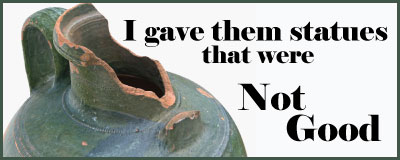
The preceding verses are very important in order to understand this verse.
God never gives useless laws to His people.
The people chose useless laws, rather than follow God’s statues and judgments.
The Hebrew word for “gave” actually means “gave up”.
Ezekiel 20:19-25
19 I am the Lord your God; walk in my statutes, and keep my judgments, and do them;
20 And hallow my sabbaths; and they shall be a sign between me and you, that ye may know that I am the Lord your God.
21 Notwithstanding the children rebelled against me: they walked not in my statutes, neither kept my judgments to do them, which if a man do, he shall even live in them; they polluted my sabbaths:…
24 Because they had not executed my judgments, but had despised my statutes, and had polluted my sabbaths, and their eyes were after their fathers’ idols.
25 Wherefore I gave [gave up] them also statutes that were not good, and judgments whereby they should not live;
Because the people did not follow Yahuah’s Holy Way, then he “gave them up” to the useless statues of the other nations.
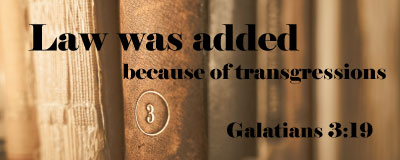
Please do not confuse the covenant and the Law. The Law was added after the people broke the covenant with the golden calf.
The Commandments were not “added”, they were spoken by Yahuah and written by His finger in stone. Because the people broke the covenant, the law was “added” and placed next to the Ark of the Covenant.
Galatians 3:19 What, then, is the law for? It was added because of transgressions, until the seed should come to whom the promise was made; and it was ordained by angels in the hand of a mediator.
Deuteronomy 31:26 Take this book of the law, and put it in the side of the ark of the covenant of the LORD your God, and it is there as a testimony against you.
The “writing of ordinances” were added (Galatians 3:19, Deuteronomy 31:26). They were not the commandments. All of the sacrifical system was added because the people broke the covenant. This took the place of the people dying, until the Messiah came. With Yahushua’s death the sacrificial system was no longer required. That is what ended at the cross. Not the commandments. Now the covenant must be written in our hearts, not in stone. It is not abolished, it has come to life!
The sacrifices were only added (Gal 3:19) because of the sin of the people.
Yahuah desired obedience to His Laws, statues, and judgement (like Abraham did – Genesis 26:5). Yahuah did not desire sacrifice and did not require it when the Israelites left Egypt. Sacrifice was added because of the sin of the people.
Hosea 6:6; Psalm 51:16; Psalm 40:6–8; Jeremiah 7:21–23; Hebrews 10:4–10
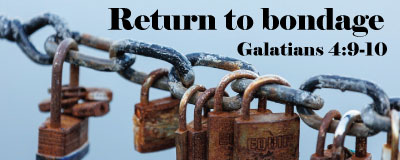
The Galatians were gentiles who used to observe the days, months and holidays of their pagan gods. They were in bondage to false gods. Paul is saying they came to know the true God, but now are turning BACK to observing those pagan days. Paul is saying he is afraid the Galatians may return to the pagan holiday practices.
This is just like the Christians observing pagan days of Sunday, Easter and Christmas.
To say that the Sabbaths were “week and beggarly elements of bondage” would be saying that Yahuah gave the Israelites bad rules to follow! Not true!! The covenants of Yahuah are never referred to as “bondage.”
Galatians 4:8-11 Howbeit then, when ye knew not God, ye did service unto them which by nature are no gods. 9 But now, after that ye have known God, or rather are known of God, how turn ye again to the weak and beggarly elements, whereunto ye desire again to be in bondage? 10 Ye observe days, and months, and times, and years. 11 I am afraid of you, lest I have bestowed upon you labour in vain. 12 Brethren, I beseech you, be as I am; for I am as ye are: ye have not injured me at all.
So these people, who were gentiles before, are now reverting back to their old ways, before they were saved, to a time when they did not know Yahuah (Gal 4:8).
Paul is talking about the pagan days, months, etc that they were observing before they became believers. The commandments of Yahuah are not “weak and beggarly elements”. And Paul begs the Galatians to be like him. Paul kept the Shabbat Feasts of the Lord (Acts 18:21, 20:6,16, 27:9, 1 Cor 16:8) and encouraged the Gentile believers to do the same.
Other verse references to support this claim that Paul was referring to pagan holidays:
Galatians 4:3 Even so we, when we were children, were in bondage under the elements of the world:
Galatians 4:8 Howbeit then, when ye knew not God, ye did service unto them which by nature are no gods.
Proof that Galatia was a gentile place worshiping other gods:
Acts 14 – takes place in Galatia – which worshiped the gods Zeus and Hermes
Acts 14:1,8,11,12
1 And it came to pass in Iconium [part of Galatia]
8 In Lystra [also part of Galatia]
11 When the crowd saw what Paul had done, they shouted in the Lycaonian language, “The gods have come down to us in human form!”
12 Barnabas they called Zeus, and Paul they called Hermes because he was the chief speaker.
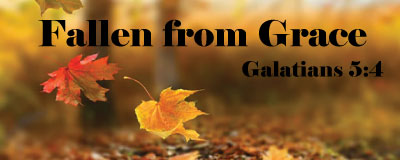
Galatians 5:4 Christ is become of no effect unto you, whosoever of you are justified by the law; ye are fallen from grace.
The Pharisees believed that keeping their laws (which were many in addition to the actual Torah given by Yahuah) would save them. This is not found in the Old Testament. Abraham and others in the Old Testament were saved by faith, not by keeping the Law. The Pharisees during Yahushua’s time were trying to bring everyone under their law. Clearly Yahushua taught that the Pharisees were following traditions of men (see Matthew 15:1-3, Mark 7:8, Romans 10:1-3, Isaiah 29:13).
Before Paul became a follower of Yahushua, he was following the Talmud and traditions of the elders, NOT the Old Testament of Yahuah.
Galatians 1:14 [Paul] profited in the Jews’ religion above many my equals in mine own nation, being more exceedingly zealous of the traditions of my fathers.
For more understanding of Galatians see:
A Hebraic Perspective on Galatians
Christian Foundational Teachings, No. 7 Galatians (Advanced) At Last, Galatians Understandable
to Every Christian! by Professor Wa Liebenberg
A number of people mentioned in the Bible kept the law perfectly. BUT they still needed a savior, because the law does not save. Keeping the law is an act of love for Yahuah, not a prerequisite for salvation. No one was saved in the Old Testament by keeping the law. They were saved by faith.
Luke 2:39 And when they [Mary and Joseph] had performed all things according to the law of the Lord, they returned into Galilee, to their own city Nazareth.
Luke 1:6 [Zechariah and Elizabeth] And they were both righteous before God, walking in all the commandments and ordinances of the Lord blameless.
Philippians 3:6 [Paul] Concerning zeal, persecuting the church; touching the righteousness which is in the law, blameless.
Grace is not a law; it is mercy from the consequences of the law.
Over the Ark of the Covenant in the Holy of Holies was the Mercy Seat. So the idea of mercy covering our sins, is central to the Old Testament.
Grace is the enabling power from the Father for us to do the law. It is not law vs grace. It is both working together to enable us to be perfect in Yahuah’s eyes.
Grace is all through the Old Testament. And so is faith. Old Testament people all looked forward to the Messiah. Now we look back to the Messiah. Everyone, Old Testament and New Testament, is saved by grace and faith in Yahushua’s finished work on the cross.
We are not justified by works; but once we are saved, we are rewarded for our works.
We do not receive eternal life based on our works; but once we are saved, our place in the Kingdom of Heaven is based on what we do in this life.
Romans 8:6-7 The mind governed by the flesh is death, but the mind governed by the Spirit is life and peace. 7 The mind governed by the flesh is hostile to God; it does not submit to God’s law, nor can it do so.
So an indication that a person is governed by the Spirit is the fact that they do submit to Yahuah’s law. This is their fruit – loving Yahuah and loving others.
Both Moses and the Lamb are in Revelation.
The overcomers shall sing of “Moses and the Lamb.” They will not sing of “Paul and the Lamb.”
Revelation 15:3
And they sing the song of Moses the servant of God, and the song of the Lamb, saying, Great and marvellous are thy works, Lord God Almighty; just and true are thy ways, thou King of saints.

The original Greek word for “end” is “telos” which can have two meanings:
1. the termination of something
2. the aim or purpose of something.
Which one of these meanings did Paul really intend to use?
Most Christians think Paul is saying the law is ended or terminated or “done away with.
But Paul only a few verses previously said Romans 3:31: “Do we then make VOID the law through faith? Certainly not! On the contrary, we establish the law.”
Notice how “telos” is usually translated in I Timothy 1:5 as “purpose”, “goal” or “aim”:
(NKJV) Now the purpose of the commandment is love from a pure heart, from a good conscience, and from sincere faith,
Although KJV is:
Now the end of the commandment is charity out of a pure heart, and of a good conscience, and of faith unfeigned:
In the earlier verses of Romans 10, we read:
“Brethren, my heart’s desire and prayer to God for Israel is that they may be saved. For I bear them witness that they have a zeal for God, but not according to knowledge. For they being ignorant of God’s righteousness, and seeking to establish their own righteousness, have not submitted to the righteousness of God” (Romans 10:1-3).
Paul was saying here that Israel is zealous, but they are doing it with the wrong understanding. For many Jews during the time of Paul, they were trying to earn their salvation by keeping the law of God.
Now, it doesn’t mean it is wrong to keep the law, but their motivation and purpose were wrong. They thought that by themselves, they could earn salvation and gain God’s grace.
That’s why Paul needed to explain to them that they need the sacrifice of Yahushua to be cleansed of their sins. By believing and accepting the sacrifice of Yahushua, they can now submit to the “righteousness of God” instead of establishing their “own righteousness.”
When Paul wrote in Romans 10:4 that the Messiah is the goal or aim of the law, Paul was pointing us to Yahushua. He was saying that we must make it a goal or aim to develop the mind and character of our Savior and Master, Yahushua the Messiah!
That’s the deep and important point of Paul here. He was not trying to abolish the law in Romans 10:4, but rather, he was teaching that our goal in keeping the law is to become like Yahushua.
Remember, Yahushua is the living Word of God. He is the perfect representation of how we must keep the law, what our motivation should be in keeping the law, and what the law really teaches.
So, when you follow God’s laws and commandments, bear in mind that we keep them to help us develop Christ’s character, mind, and wisdom.
Source of above:
What does Romans 10:4 mean when it says, “Christ is the end of the law?”
Yahushua died to save us from the penalty of the law, not from the law itself.
Romans 7:6 But now, by dying to what once bound us, we have been released from the law so that we serve in the new way of the Spirit, and not in the old way of the written code.
The verse does not say that now we disobey in the Spirit but rather that we now obey in the Spirt.

Romans 14:5 One man esteemeth one day above another: another esteemeth every day alike. Let every man be fully persuaded in his own mind.
Romans 14 is talking about food and what days people choose to fast (Rom 14:5). This was also a topic of discussion among the disciples of John the Baptist (Matthew 9:14, Luke 18:12).
Romans is not talking about the Shabbat, in fact the Shabbat is never mentioned in the entire book of Romans.
Romans 14 say we are not to “contend over opinions”. The 10 Commandments are not “opinions”. Opinions are man-made rules; the Commandments are the Word of Yahuah.
These are “Jewish customs” because they did not belong to Yahuah but were indeed man-made customs of the Jews.
Further discussion can be found at:
Does Romans 14:5-6 say that the weekly Sabbath is optional?

Grace certainly exceeds the law. Grace requires even MORE than the law did.
The commandment: Thou shalt not kill
Matthew 5:21-22 Ye have heard that it was said of them of old time, Thou shalt not kill; and whosoever shall kill shall be in danger of the judgment:
22 But I say unto you, That whosoever is angry with his brother without a cause shall be in danger of the judgment: and whosoever shall say to his brother, Raca, shall be in danger of the council: but whosoever shall say, Thou fool, shall be in danger of hell fire.
The commandment: Thou shalt not commit adultery
Matthew 5:27-28 Ye have heard that it was said by them of old time, Thou shalt not commit adultery:
28 But I say unto you, That whosoever looketh on a woman to lust after her hath committed adultery with her already in his heart.
The commandment: Thou shalt love thy neighbour
Matthew 5:43-44 Ye have heard that it hath been said, Thou shalt love thy neighbour, and hate thine enemy.
44 But I say unto you, Love your enemies, bless them that curse you, do good to them that hate you, and pray for them which despitefully use you, and persecute you;
So grace adds the “spirit” of the commandment in ADDITION to the commandment.
So why would the Shabbat be deleted and only “spiritual” rest be for today?
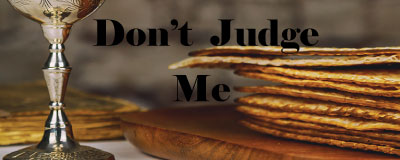
Don’t let anyone judge you WHEN you are celebrating the Feasts of the Lord.
Colossians 2:16 Let no man therefore judge you in meat, or in drink, or in respect of an holyday, or of the new moon, or of the sabbath days:
Colossae was a city in western Asia Minor and the Colossians were Gentiles in their frame of mind (Col 1:21, 2:13). Obviously Paul wouldn’t order them to stop celebrating festivals which they, as unconverted gentiles, were not keeping to begin with. …Paul was attacking the philosophy of asceticism in his letter to the Colossians. The Ascetic philosophy was one of self-denial in food, and clothing and other comforts of life. By shunning these comforts, the followers of asceticism created a sort of “self-humiliation” (Col 2:18)” and severity of the body” (Col 2:23). These ascetics had been criticizing the Colossian Christians for their INDULGENCE at the FESTIVALS.
From http://www.british-israel.us/06.html
A very detailed discussion on the Feasts of the Lord.
Paul is actually saying “don’t let anyone judge you WHEN you are celebrating the Feasts of the Lord.”
There are two types of Shabbats – the 7th day Shabbat and the Feast day Shabbats. Col 2:16 is speaking of the Feast Day Shabbats, not the 7th day Shabbat.
Here is a 1 minute YouTube video overview of the Feasts of the Lord and how they are fulfilled in Yahushua.
7 Feasts Of The Lord
All of scripture must agree. If Paul is telling the Colossians NOT to keep the Feasts of the Lord (Shabbats – plural), then why does he say to KEEP the feast in 1 Corinthians? The Feast being referred to in 1 Corinthians was the Feast of Unleavened Bread, which was a picture of Yahushua being buried for 3 days, before He resurrected for the Feast of FirstFruits.
Paul kept the Feasts of the Lord (Acts 18:21, 20:6,16, 27:9, 1 Cor 16:8) and encouraged the Gentile Christians to do the same.
Paul is telling them not to be bothered by others who are judging them when they do keep these Feasts.
His warning is against man-made traditions. He is not warning against the Feasts and Shabbats of Yahuah.
Examples of warnings against man-made traditions:
Col 2:8 …philosophy and vain deceit, after the tradition of men, after the rudiments of the world
Col 2:14 … handwriting of ordinances [sins committed, the human works of the mind and flesh resulting in disobedience]
Col 2:18 worshipping of angels
Col 2:20-22 the rudiments of the world, why, as though living in the world, are ye subject to ordinances, (Touch not; taste not; handle not; Which all are to perish with the using;) after the commandments and doctrines of men?
Col 2:16 Let no one judge you when you are keeping the Feasts and the Shabbats because when you do you are very close to Yahushua, so close that you are in His shadow.

A shadow is always close and “attached” to the real thing! So if the Shabbat is a shadow of Yahushua that means we are really close to Him. Wonderful!!
In English, “in the shadow of someone” implies one is inferior. In Hebrew, the term means a place of intimacy and protection, not inferiority.
Psalms 91:1 He that dwelleth in the secret place of the most High shall abide under the shadow of the Almighty.
Psalm 36:7; Psalm 57:1; Psalm 63:7; Isaiah 51:16
The Feasts and Shabbats are a sign that we belong to Yahuah and are under His shadow and protection. And if we are under His shadow, that means we are close to Him!
Fulfillment spiritually does not negate the physical.
Yahushua is the bread of life, does that mean we don’t eat anymore?https://www.youtube.com/shorts/WL3vnKUix3c
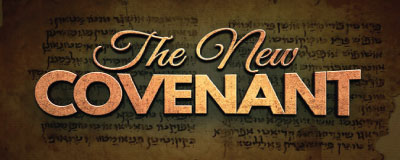
In Hebrews 8:7 and 8:13 the word “covenant” is an added word and not in the original Greek.
Yahuah found fault with the people, He did not find fault with the Covenant or Commandments.
Also, the New Covenant is with the House of Israel and the House of Judah. It is not with the House of Gentiles or the House of Christians.
Hebrews 8:7-12 is in 3 sections:
1. the first and second mediators of the covenant (Heb 8:7-9)
2. quote of Jer. 31:31-34 (Heb 8:10-12)
3. back to discussing the mediator (Heb 8:13)
The mediator of the covenant has changed (from Moses to Yahushua).
The covenant has not changed.
Hebrews 8:6-8
6 But now hath he obtained a more excellent ministry, by how much also he is the mediator of a better covenant, which was established upon better promises.
7 For if that first
8 For finding fault with them [ie. the Israelites, God did not find fault with the covenant], he saith, Behold, the days come, saith the Lord, when I will make a new covenant with the house of Israel and with the house of Judah:
9 Not according to the covenant that I made with their fathers in the day when I took them by the hand to lead them out of the land of Egypt; because they continued not in my covenant, and I regarded them not, saith the Lord.
10 For this is the covenant that I will make with the house of Israel after those days, saith the Lord; I will put my laws into their mind, and write them in their hearts: and I will be to them a God, and they shall be to me a people:
11 And they shall not teach every man his neighbour, and every man his brother, saying, Know the Lord: for all shall know me, from the least to the greatest.
12 For I will be merciful to their unrighteousness, and their sins and their iniquities will I remember no more.
13 In that he saith, A new
The “New” Covenant is the same as the “Old” Covenant. The only difference is that the New Covenant is written on our hearts, rather than written on stone.
Compare Jeremiah 31:31-34 and Hebrews 8:8-11
Notice that in all the verses (2 Co 3:1-18; Heb 8:1-13; Jer 31:31-33), the writing of the covenant is on our heart rather than on stone. What is written HAS NOT CHANGED. WHERE it is written is what changed!!
Notice in reading Hebrews that much is spoken of regarding the Tabernacle and the sacrificial system. This is the covenant which became obsolete when Yahushua shed His own blood for our sins. The temple no longer exists and no sacrifices are being done – they are obsolete.
The fact that the sacrificial system was to end is discussed in detail. There is no similar discussion in the New Testament for ending the Shabbat.
Yahuah’s original plan was for the Israelites to have His Covenant on their hearts, but they drew back in fear (Ex 20:18 & Heb 10:38-39) and did not enter His presence. So the commandments were written on stone. Now those same commandments are to be written on our heart, and we live them by the help of the Holy Spirit.
Ezekiel 36:26-27 I will give you a new heart, and put a new spirit within you; and I will remove from your flesh the heart of stone, and give you a heart of flesh. 27 And I will put My Spirit within you, and I will cause you to walk in My statutes, and keep My precepts, and put them to work.
When we have the Spirit in our hearts, we do the commandments of Yahuah.
The covenant does not save, and never did. It was a marriage covenant for people who were ALREADY saved. The Israelites had been miraculously saved out of Egypt (a picture of sin) and baptized (through the Red Sea crossing) and made ready to enter into a marriage Covenant with their Redeemer. But THEN they broke the covenant, THEN they were given the Levitical sacrificial laws. Only the sacrificial laws were ended when Yahushua became the perfect sacrificial lamb on the cross.
The covenant is now written on our hearts, and not on stone!
2 Corinthians 3:3
Forasmuch as ye are manifestly declared to be the epistle of Christ ministered by us, written not with ink, but with the Spirit of the living God; not in tables of stone, but in fleshy tables of the heart.
“New” covenant is the Greek word καινός (kainen) 2537, having the meaning of “re-new”.
This is in the same family of Greek words as anakainףō (“up, completing a process” and kainoō, “renew,” which is derived from 2537 /kainףs) – to renew by moving from one stage to a higher (more developed) one; make qualitatively new.
Contrast this “new” with the word used for “new” in Matt 9:17. “New” (καινούς, kainous) wine is poured into “new” (νέον, neon). The old wineskins are discarded because they cannot be used at all, and totally new wineskins must be used. The wineskins cannot be “renewed” and used with the newly produced wine.
So the “New Covenant” is better translated the “Renewed Covenant”. The Covenant is clearly stated in Heb 8:10

Isaiah 1:14 The people were not keeping Yahuah’s Shabbats and Festivals. He says “Your new moons and your appointed feasts my soul hateth”. The people were doing the exact same thing as Christians today. Most Christians strongly adhere to their traditions (Christmas, Easter, Sunday). The traditions surrounding these days are not in the Bible but are the teachings of men. Christians are not keeping Yahuah’s Holydays, they are keeping their own holidays.
At times, the Israelites continued to keep the Shabbats, but they were not following Yahuah. Then He called the Shabbats “your sabbaths” because they were not His anymore. The people’s hearts had turned to other gods even though they continued to “keep” the sabbaths. Yahuah was not pleased, and called them “detestable sabbaths.”
He even said that He will cause all “her” sabbaths to cease. But He did not say “His” Shabbats would cease.
When Yahuah is referring to His Shabbats, He calls them “my Shabbats”.
Ex 31:13, Lev 19:3, 19:30, 26:2, Is 56:4, Ez 20:12, 20:13, 16,20,21,24, 22:8, 22:26, 23:38, 44:24
Isaiah 1:10-15
10 Hear the word of the Lord, ye rulers of Sodom; give ear unto the law of our God, ye people of Gomorrah.
11 To what purpose is the multitude of your sacrifices unto me? saith the Lord: I am full of the burnt offerings of rams, and the fat of fed beasts; and I delight not in the blood of bullocks, or of lambs, or of he goats.
12 When ye come to appear before me, who hath required this at your hand, to tread my courts?
13 Bring no more vain oblations; incense is an abomination unto me; the new moons and sabbaths, the calling of assemblies, I cannot away with; it is iniquity, even the solemn meeting.
14 Your new moons and your appointed feasts my soul hateth: they are a trouble unto me; I am weary to bear them.
15 And when ye spread forth your hands, I will hide mine eyes from you: yea, when ye make many prayers, I will not hear: your hands are full of blood.
Hosea 2:11-23
11 I will stop all her celebrations:
her yearly festivals, her New Moons,
her Sabbath days—all her appointed festivals.
13 I will punish her for the days
she burned incense to the Baals;
she decked herself with rings and jewelry,
and went after her lovers,
but me she forgot,” declares the Lord.
(read the rest of this chapter. It is beautiful!)
Amos 5:21-24
21 “I hate, I despise your religious festivals;
your assemblies are a stench to me.
22 Even though you bring me burnt offerings and grain offerings,
I will not accept them.
Though you bring choice fellowship offerings,
I will have no regard for them.
23 Away with the noise of your songs!
I will not listen to the music of your harps.
24 But let justice roll on like a river,
righteousness like a never-failing stream!
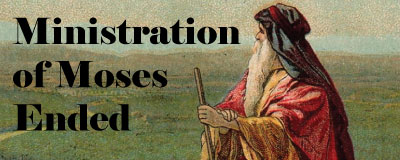
Hebrews 1 says that Yahuah (God) in the past spoke via prophets, but now speaks via His Son. It does not say that He changed what He says.
This is consistent with 2 Cor 3
The Ministration of Moses was done away with, not the Law of God. The Ministration of the Spirit is what is New and that ministration still presides over the unchanged Law of God. The glory that was done away with was the glory Moses had when administering the Law. “That” glory was replaced by the glory of Christ and the Holy Spirit.
2 Cor 3:7-8 (does not say the the law was done away, but rather the ministration. Please read carefully.)
2 Corinthians 3:7 But if the ministration of death, written and engraven in stones, was glorious, so that the children of Israel could not steadfastly behold the face of Moses for the glory of his countenance; which glory was to be done away:
8 How shall not the ministration of the spirit be rather glorious?
ALL things are not made NEW until the New Heaven and the New Earth.
Revelation 21:1, 5 And I saw a new heaven and a new earth: for the first heaven and the first earth were passed away; and there was no more sea…. And he that sat upon the throne said, Behold, I make all things new.
Hebrews 7:12 is speaking only of the Levitical priesthood and the sacrificial laws which ended when Yahushua became the perfect lamb that takes away the sin of the world. The Law that changed was the law regarding the priesthood. Since there would now be no more need for sacrifices, the laws regarding sacrifice ended. And also the laws regarding the priests chagned because now Yahushua was the High Priest forever.
This is not discussing the 10 Commandments at all.
Hebrews 7:12 For the priesthood being changed, there is made of necessity a change also of the law [regarding the priests].
27 Who needeth not daily, as those high priests, to offer up sacrifice, first for his own sins, and then for the people’s: for this he did once, when he offered up himself.
28 For the law maketh men high priests which have infirmity; but the word of the oath, which was since the law, maketh the Son, who is consecrated for evermore.

Worship can be either corporate or individual. A “church building” is not required for either. I don’t think Yahuah ever wanted us to meet in church buildings where we listen to one person speak. His plan was for a temple that only the priests entered. The temple was certainly not big enough for all the people to meet and worship in it.
For corporate worship, Yahuah gave the Feasts of the Lord for the people to gather in Jerusalem 3 times a year. The remainder of the time was family worship in the teaching of the family, or when judges, such as Samuel, or the Levites travelled around teaching and judging. The heathen, on the other hand, had shrines all over the country. They had many places to “meet with their god”.
The idea of synagogues was an invention a few hundred years before Yahushua, and not part of Yahuah’s direction for worship or learning. Synagogues may have originated during the time when the Pharisees took over the Temple. (They were not from the Levitical line, and added many man-made traditions that Yahushua opposed.)
Only one king, King Jehoshaphat, in the Old Testament had worship as Yahuah intended (2 Chron 17:6-10) – priests travelled around the country teaching the people. Yahuah specifically told the people NOT to worship Him on every high hill or High Place like the heathen. There is only ONE way to the Father, there was only one Tabernacle with only one entrance, one Temple, one Ark which had one door, one Messiah.
Teaching and learning the Scriptures was a daily thing. And keeping the Commandments was a daily thing too. That meant keeping the Shabbat on each 7th day as a day of rest from human toil, and to devote it to Yahuah.
For more on the topic of Worship, please see this study: https://docs.google.com/presentation/d/1td96e-fwJehn_sDrxlqN4UWpZ3mfDeXjPIwBwRA6v8Y/edit?usp=sharing

It is clear that the law will not pass away until ALL is accomplished. Not all has been accomplished, and will not be until the New Heaven and the New Earth after the Millennium.
In the New Heaven and New Earth, sin will no longer exist, so there will not be any need for a law that exposes sin. By analogy, there are laws for speeding on highways. But if cars no longer existed, those laws would have no effect and would be done away with.
Fulfill = “follow to the fullest”, not to destroy or change.
Matthew 5:17-18 “Do not think that I have come to abolish the Law or the Prophets; I have not come to abolish them but to fulfill them. 18 For truly I tell you, until heaven and earth disappear, not the smallest letter, not the least stroke of a pen, will by any means disappear from the Law until everything is accomplished.
Not all has been fulfilled yet.
In Luke 22:15-16, Yahushua says, “With desire I have desired to eat this passover with you before I suffer: For I say unto you, I will not any more eat thereof, until it be fulfilled in the kingdom of God.” The Kingdom of God will not come until Yahushua returns!
When on the cross, Yahushua said, “It is finished“. (John 19:30)
This was referring to the sacrifice. Every Passover, when the Priest killed the Passover lamb, he would say “It is finished”. This happened in the Temple at the same time that Yahushua said it on the cross.
The ultimate sacrifice had been made so no more sacrifices were required.
He did not mean that the Law or Commandments were finished!
The spring Shabbat Feasts were fulfilled with Yahushua’s death and resurrection (Passover, Unleavened Bread, Firstfruits), and the birth of the church at Pentecost (Feast of Weeks). The Fall Shabbat Feasts are still to be fulfilled when Yahushua returns at the second coming (Feast of Trumpets, Day of Atonement, and Feast of Tabernacles). So not all has been fulfilled. And what has yet to be fulfilled are Shabbats! All the Feast are Shabbats. The Shabbat is still at the core of Yahuah’s Plan. They are not past shadows, but future prophecy to be fulfilled.
What did Yahushua abolish?
Yahushua abolished death
2 Timothy 1:10 But is now made manifest by the appearing of our Saviour Jesus Christ, who hath abolished death, and hath brought life and immortality to light through the gospel:
He abolished the enmity in the ordinances (not the covenant commandments)
Ephesians 2:15 Having abolished in his flesh the enmity, even the law of commandments contained in ordinances; for to make in himself of twain one new man, so making peace;
